
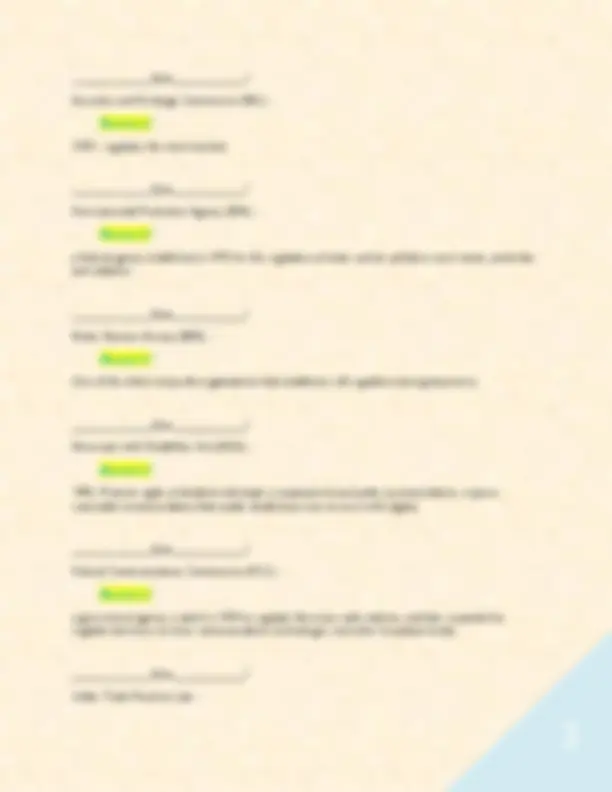
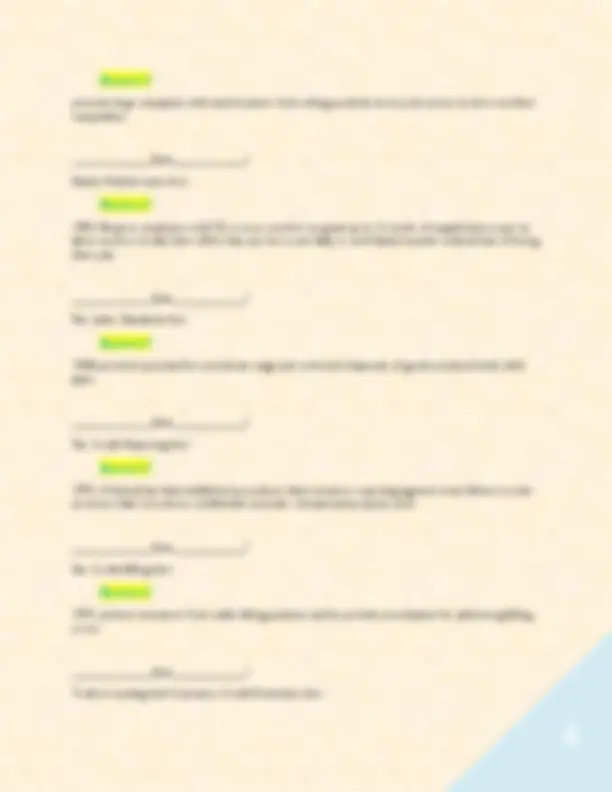
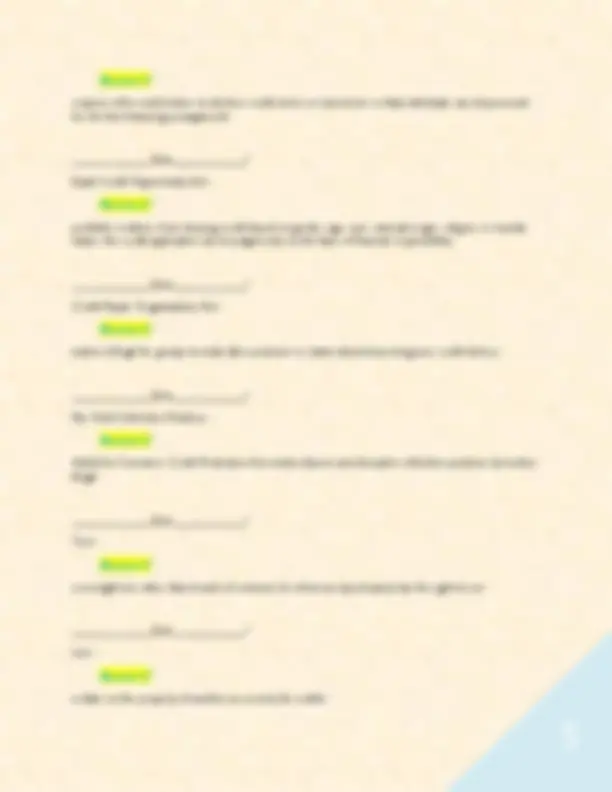
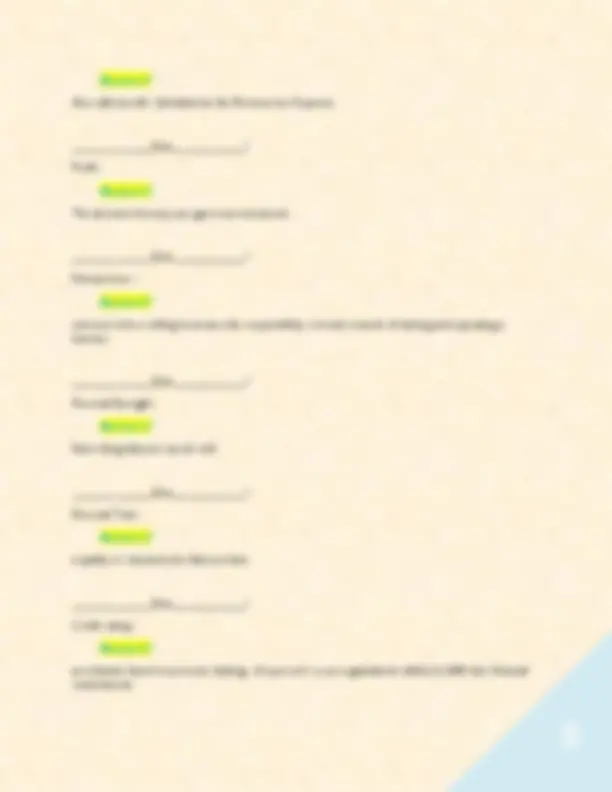
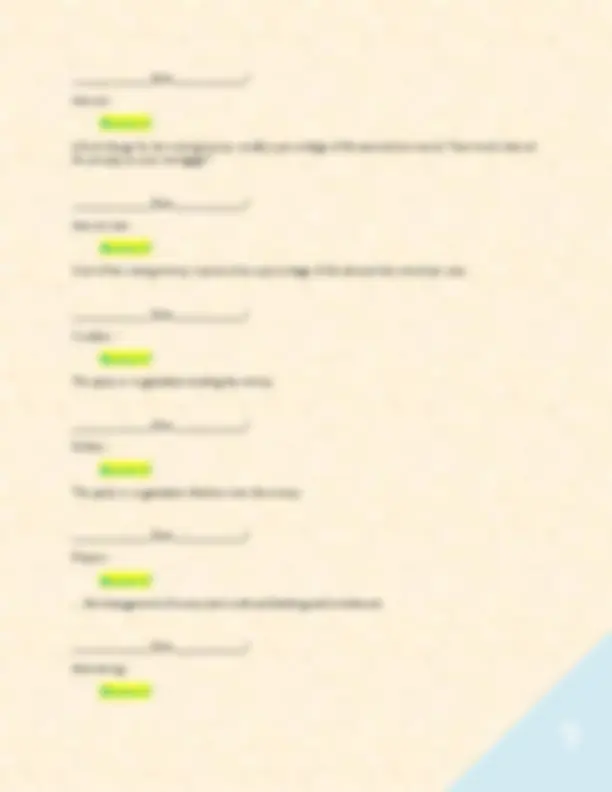
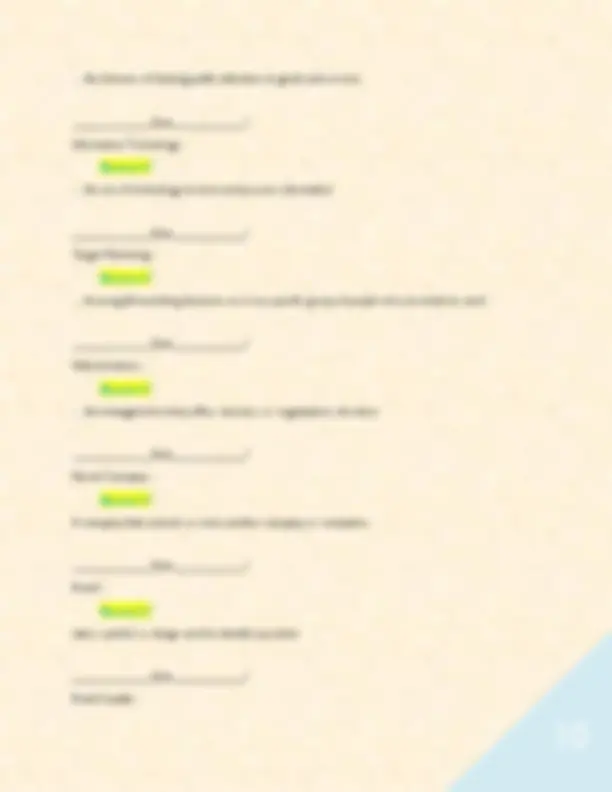
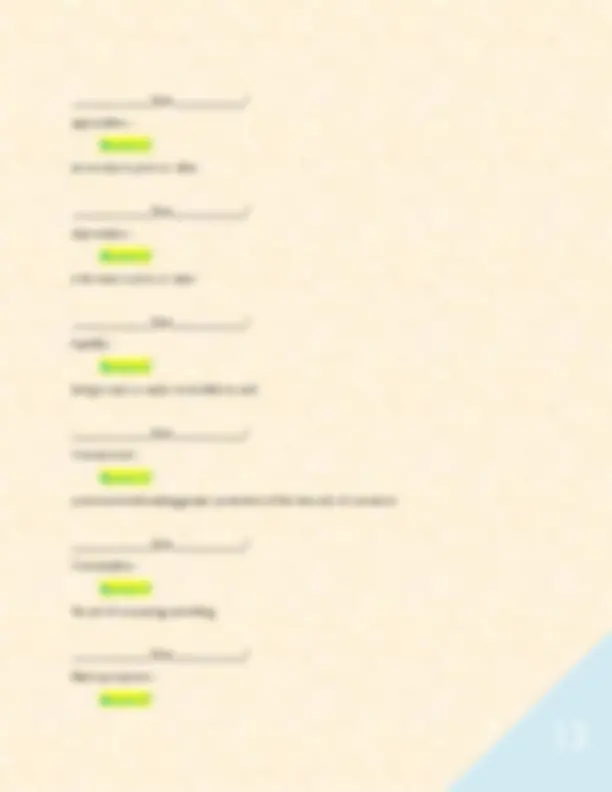
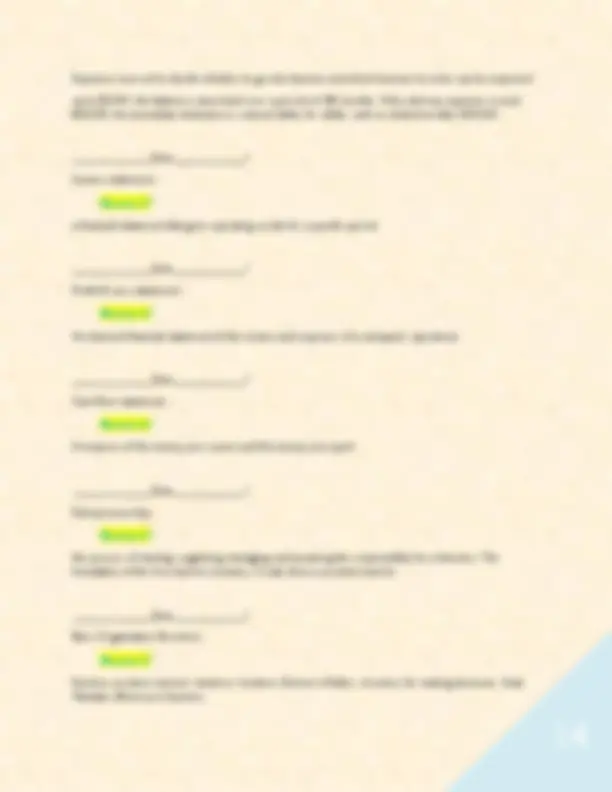
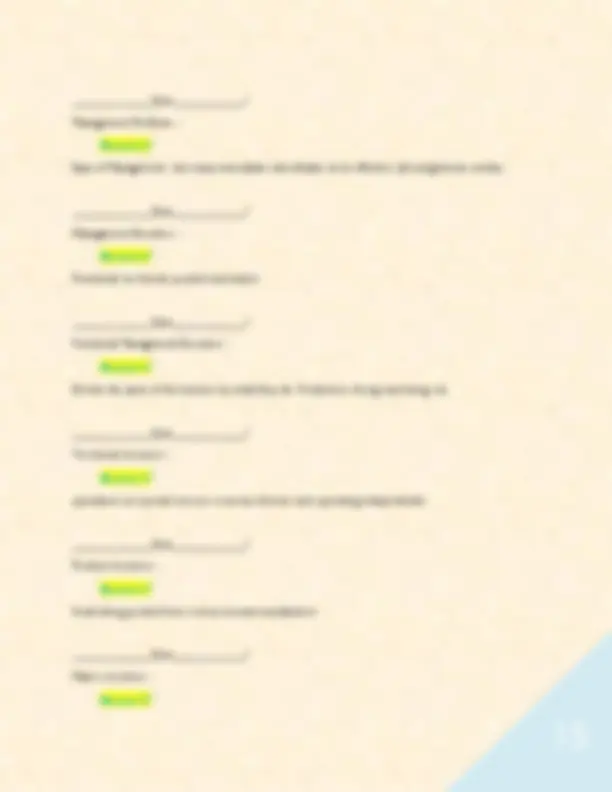
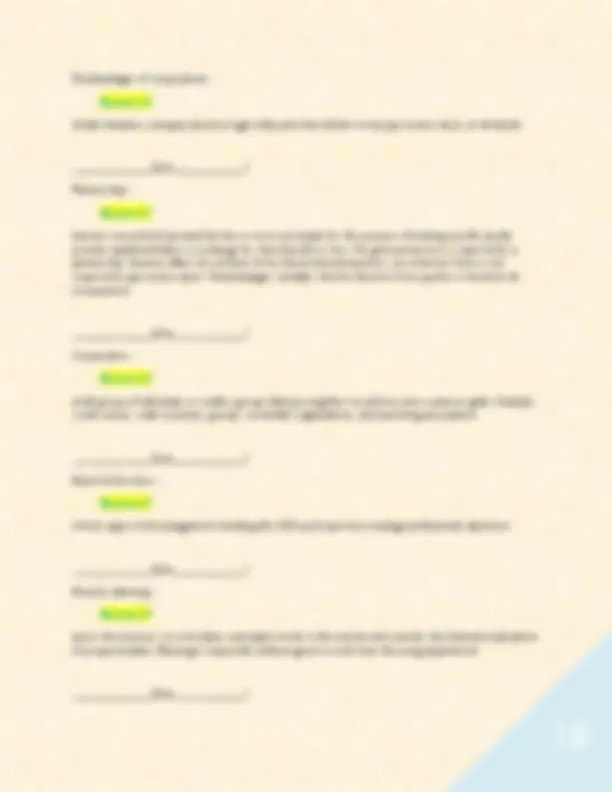
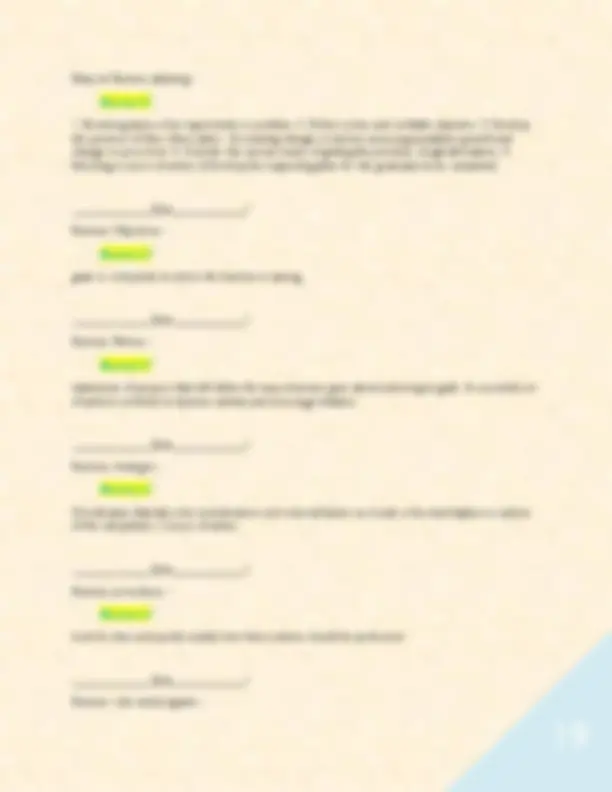
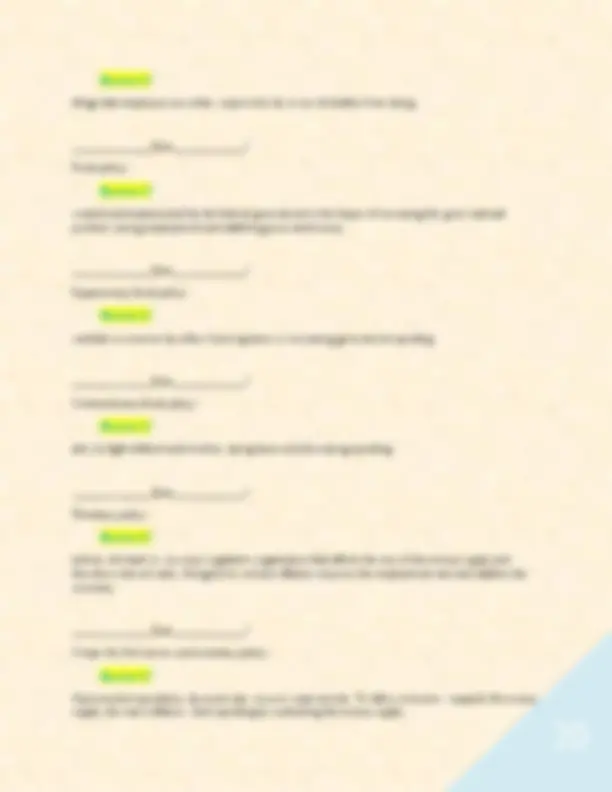
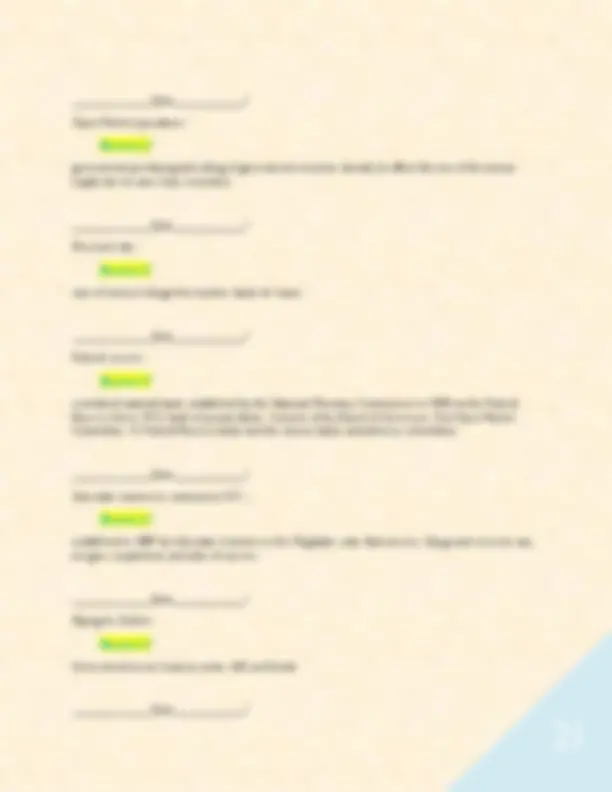
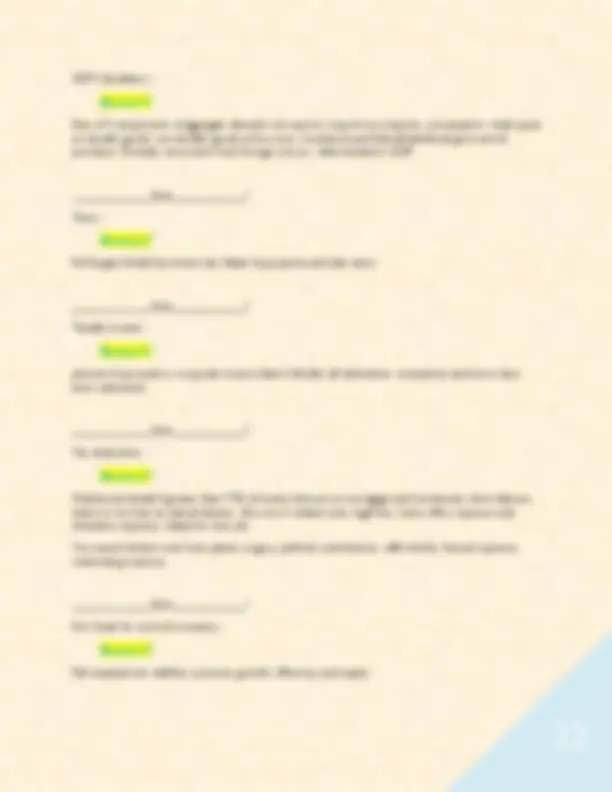
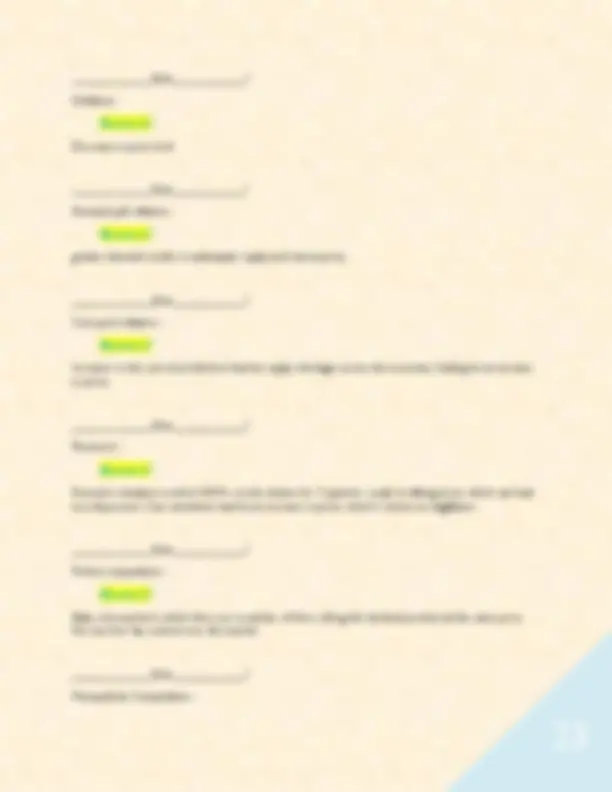
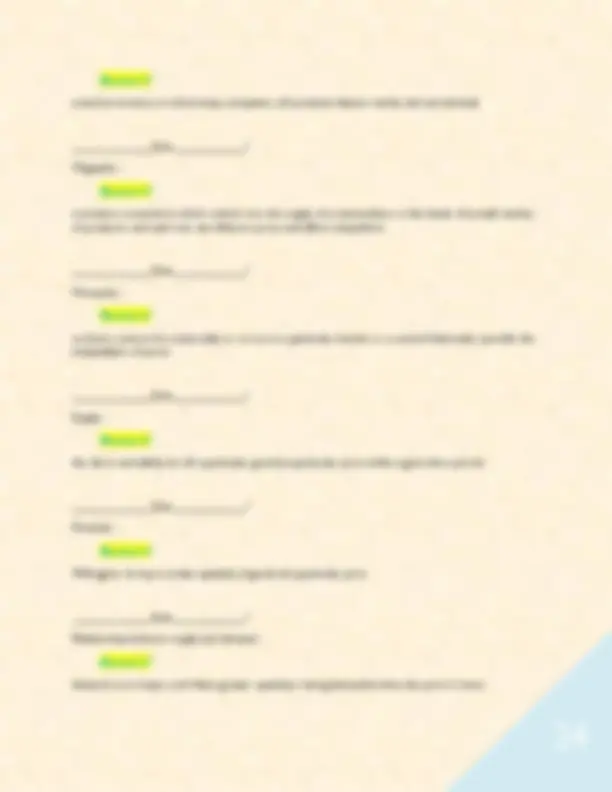
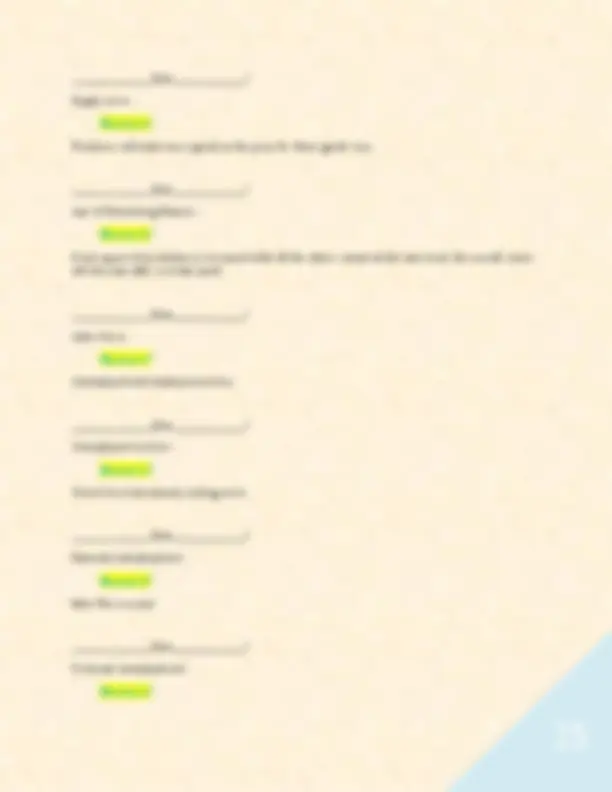
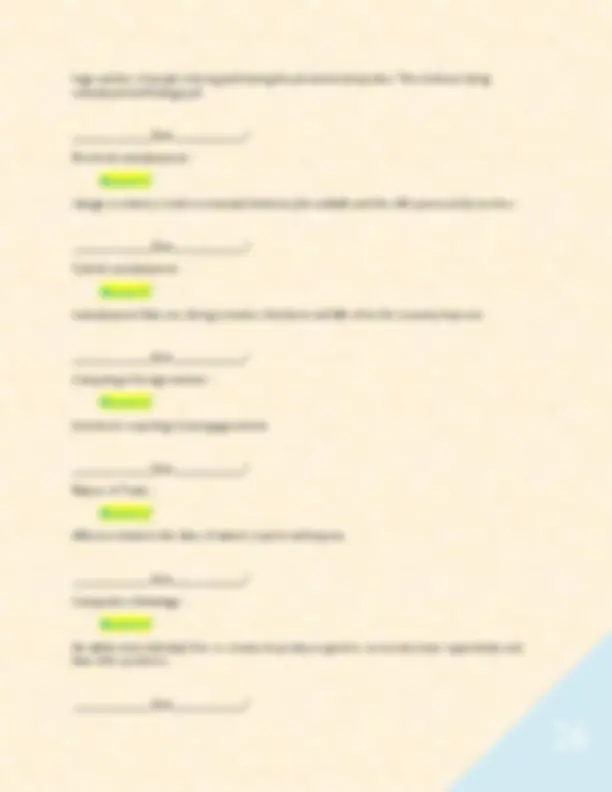
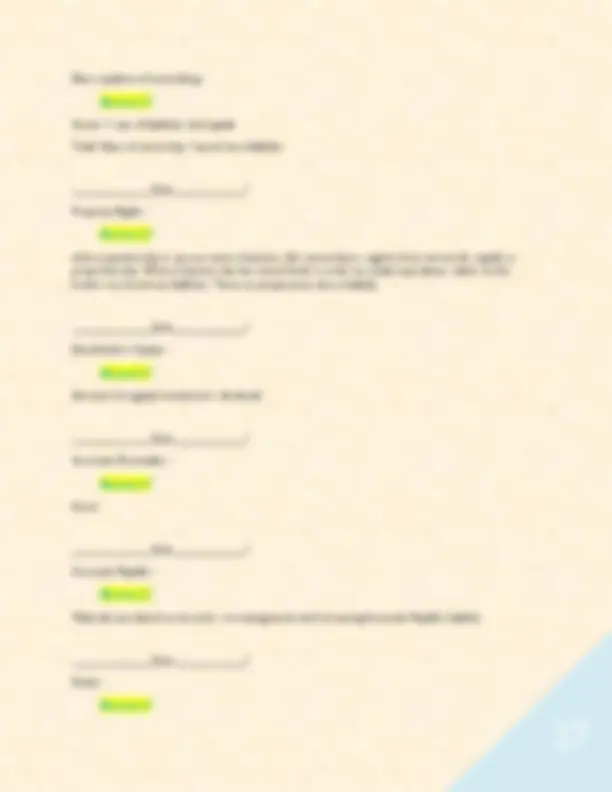
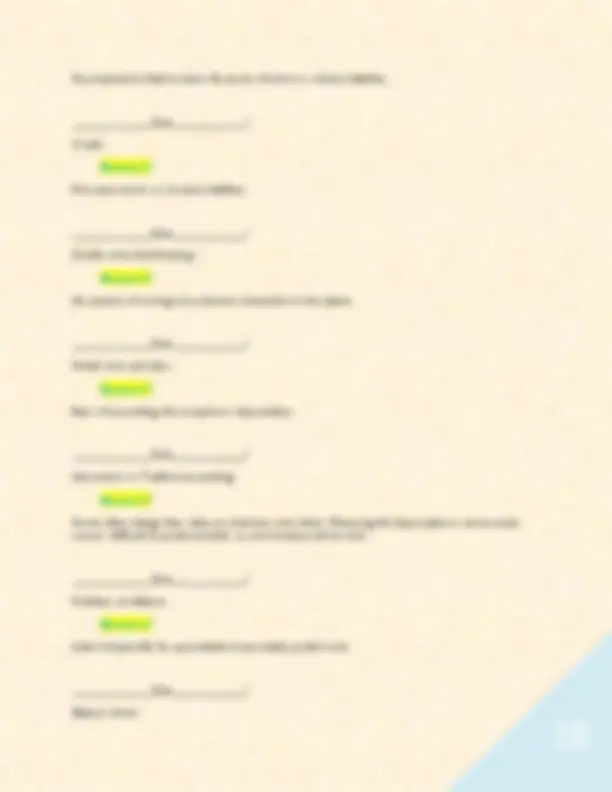
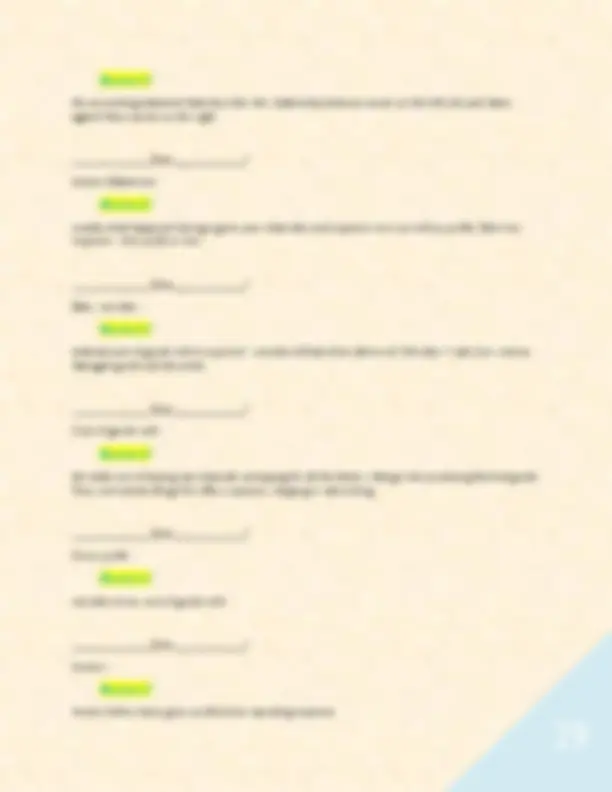
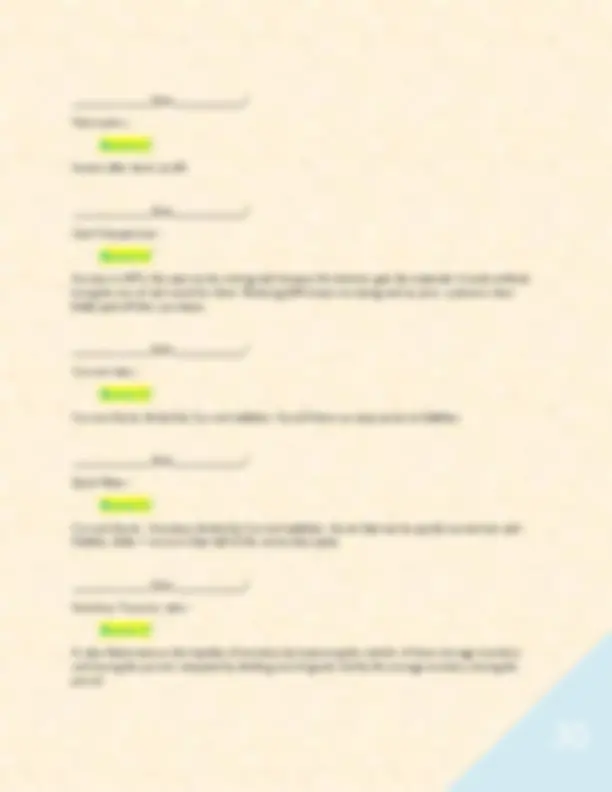
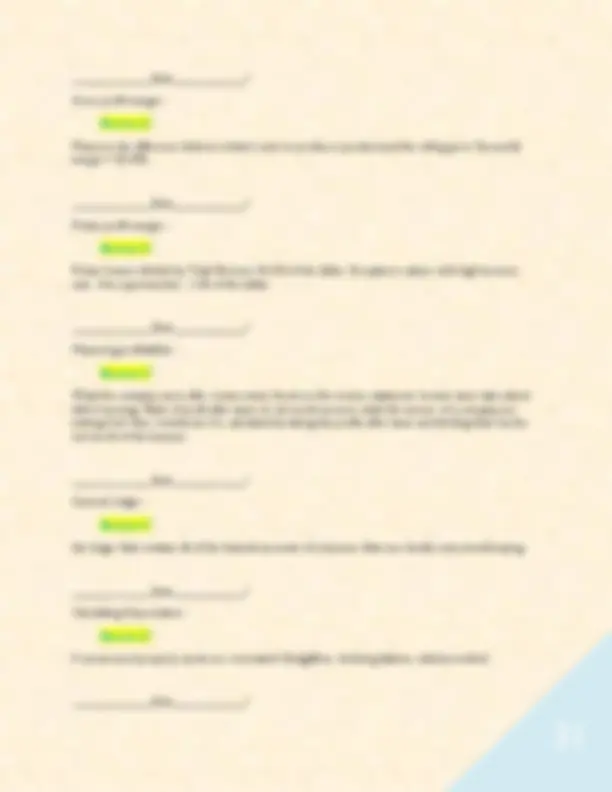
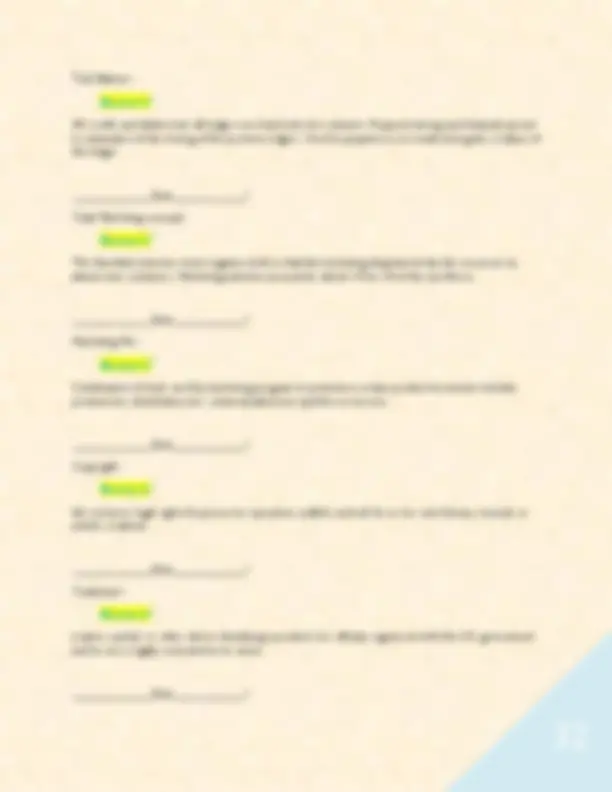
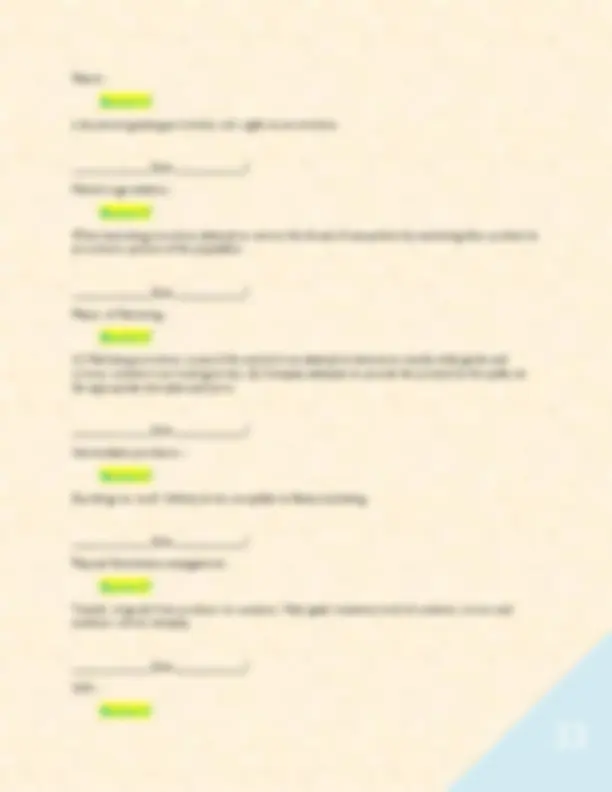
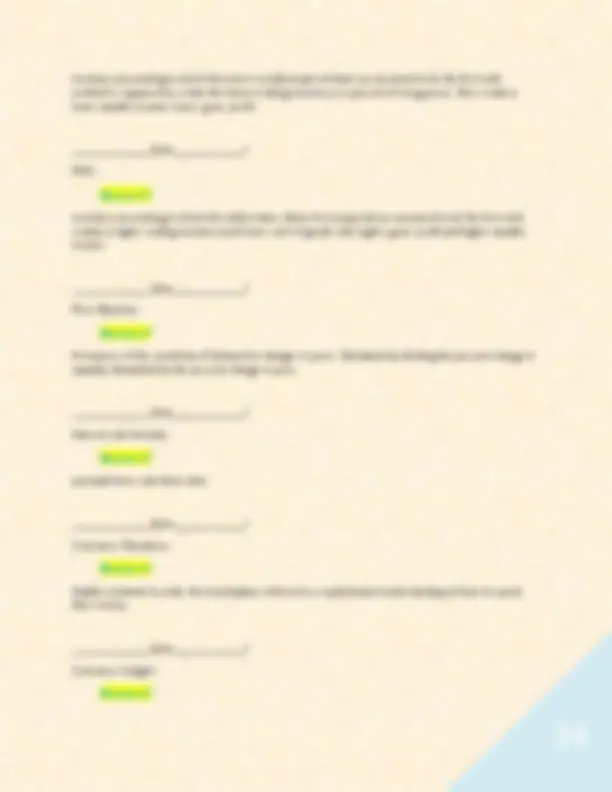
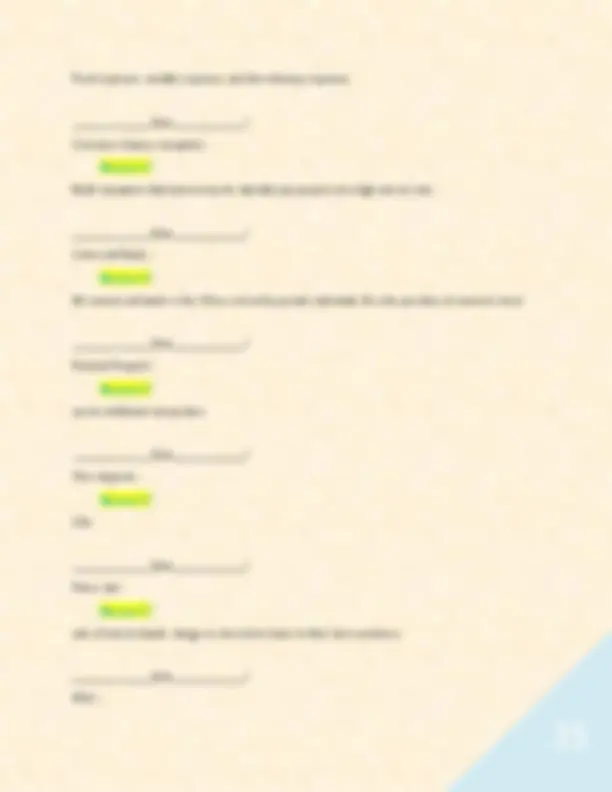
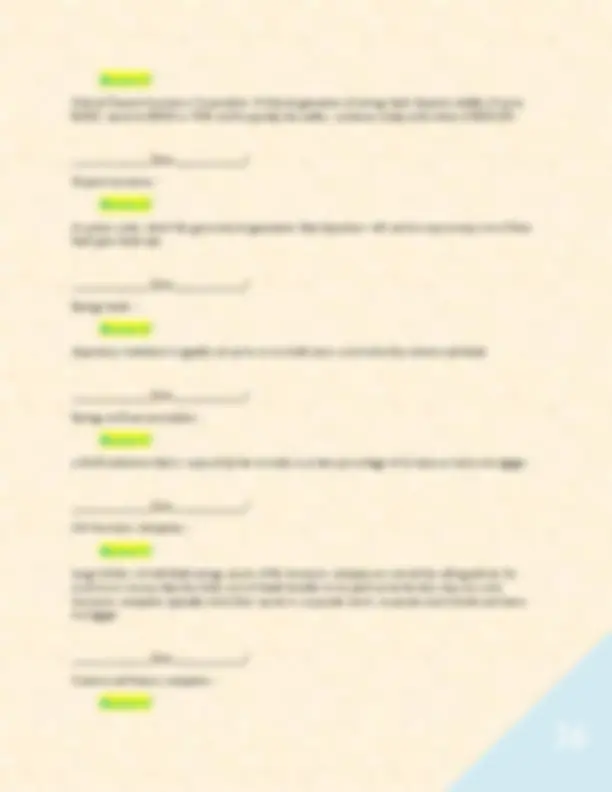
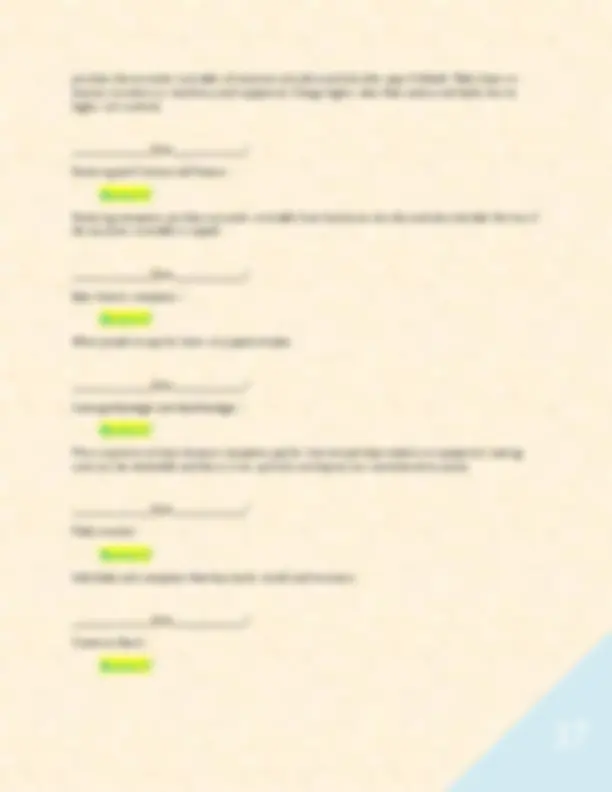
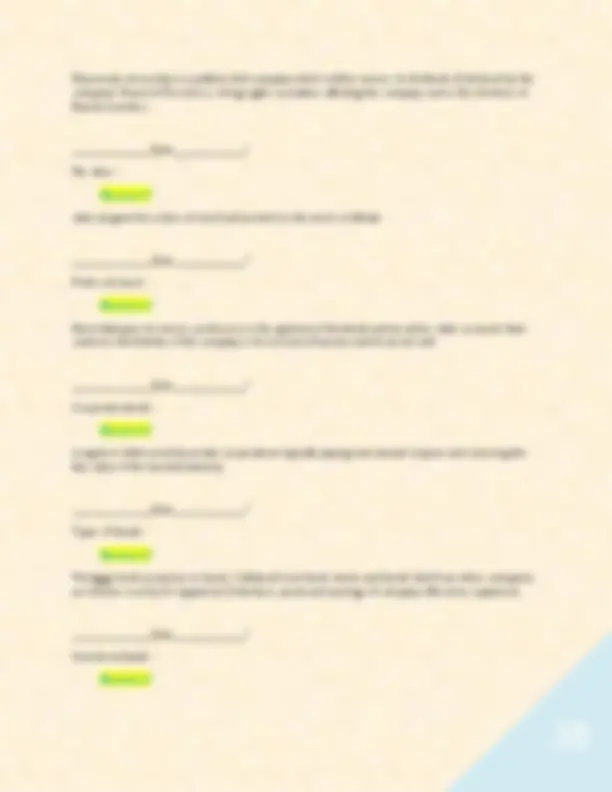
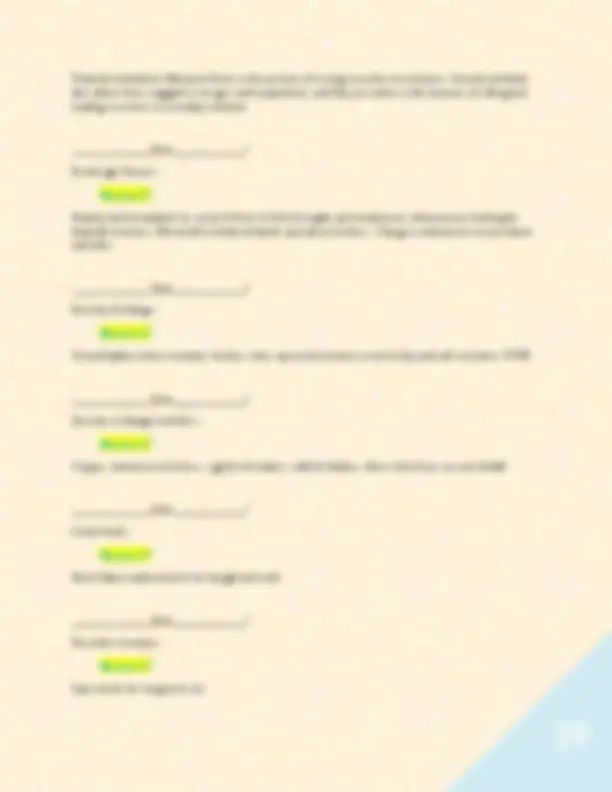
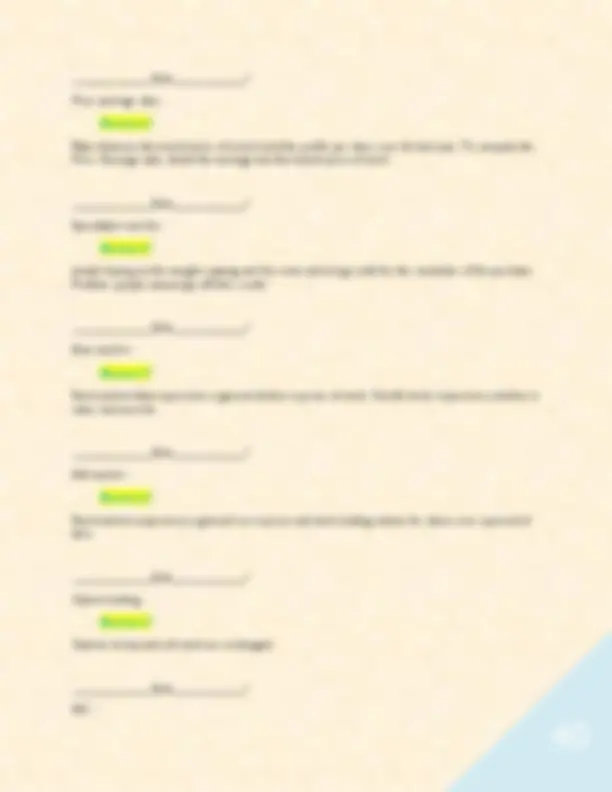
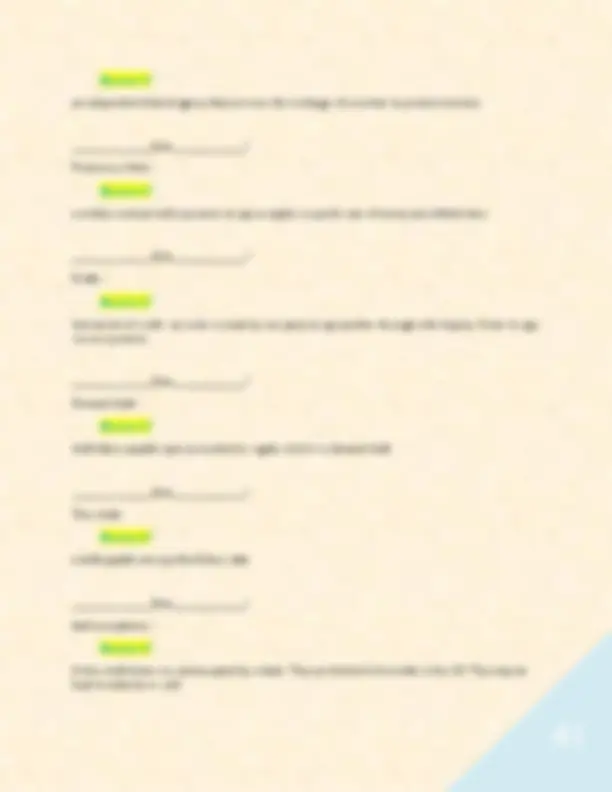
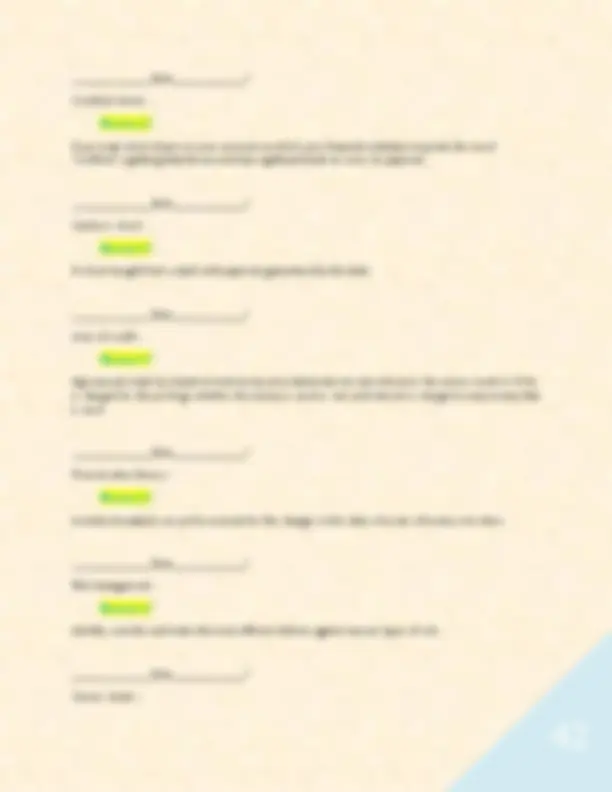
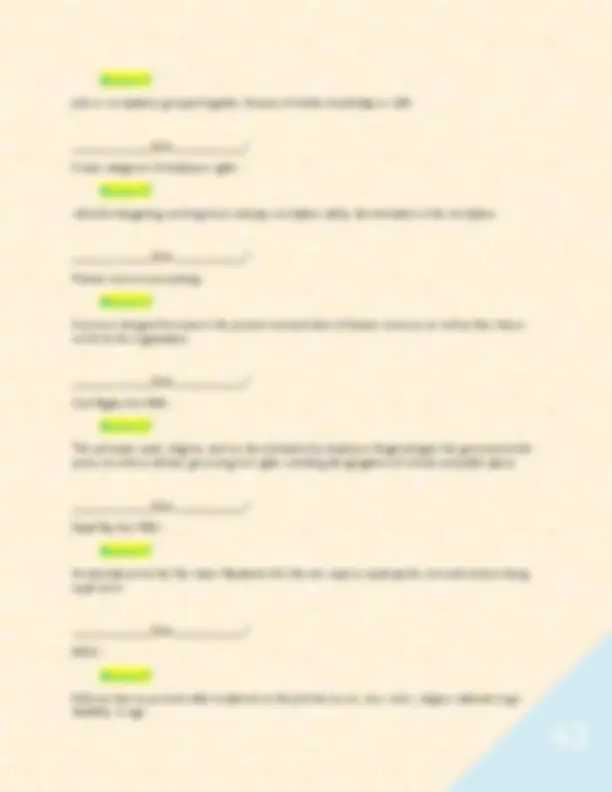
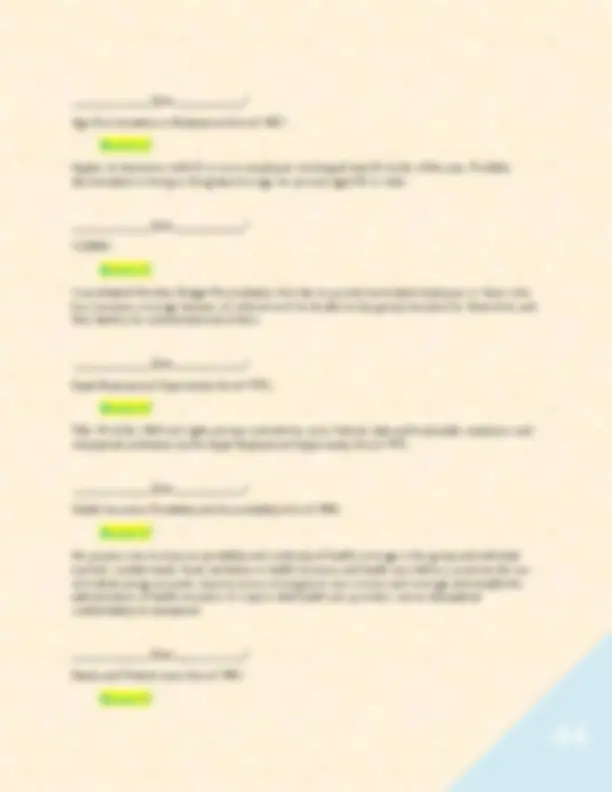
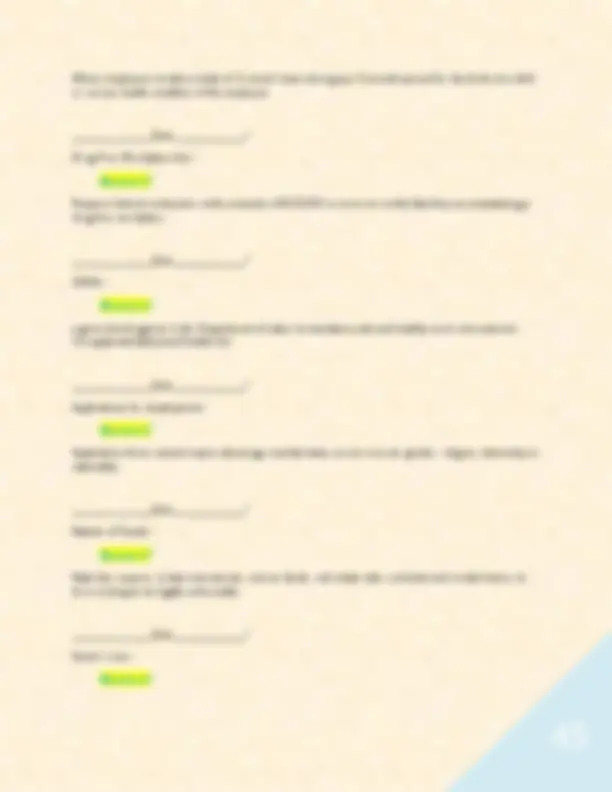
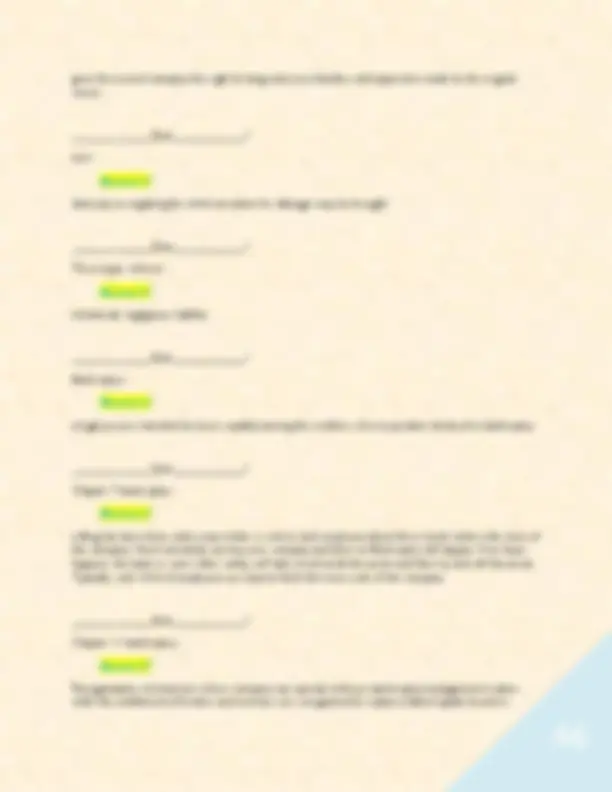
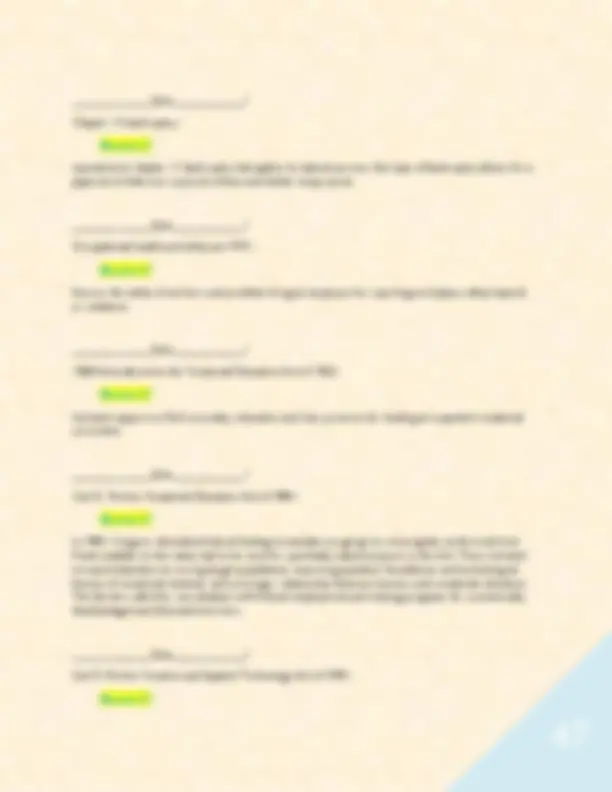
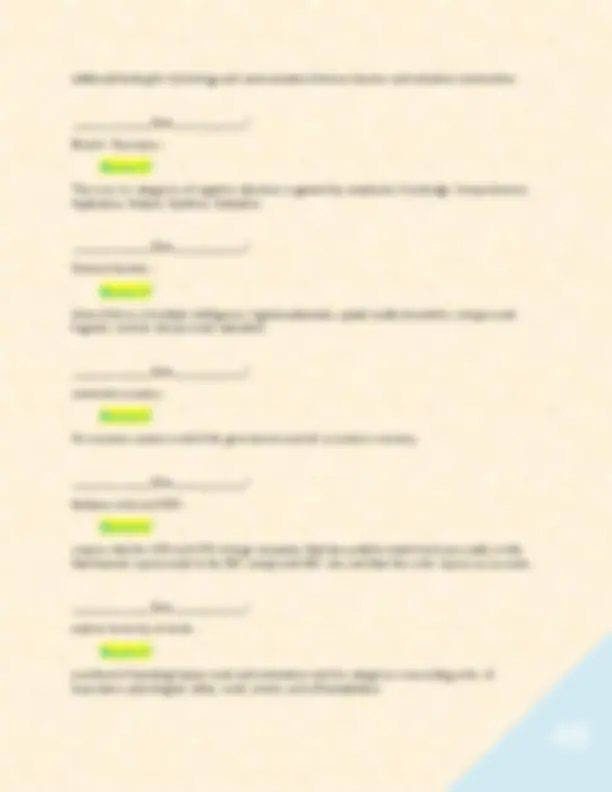
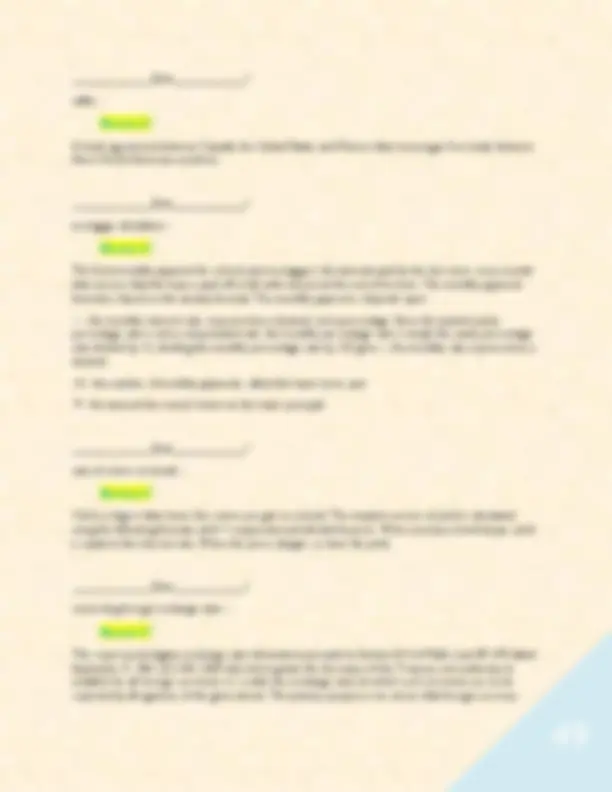
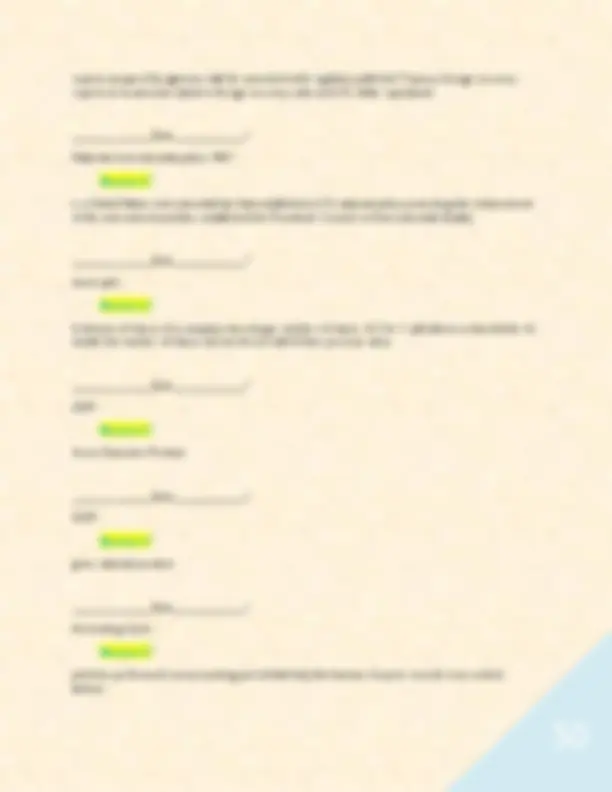
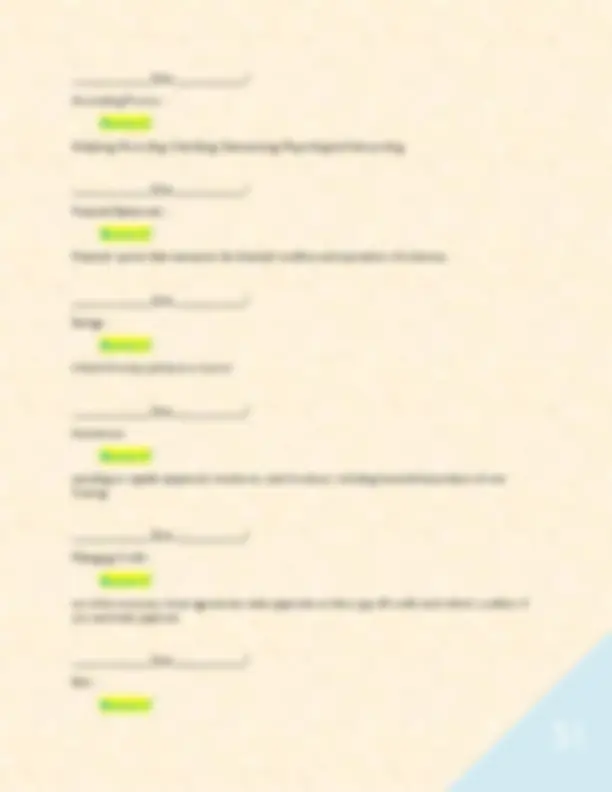
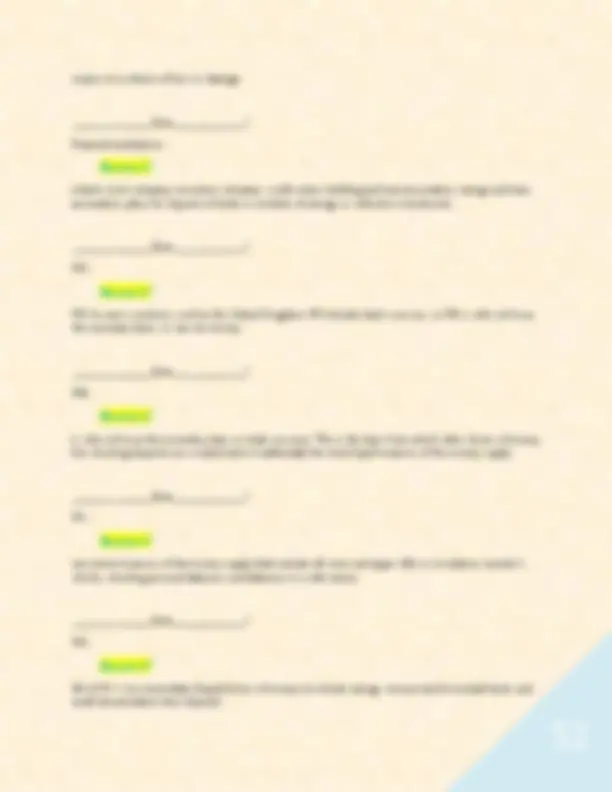
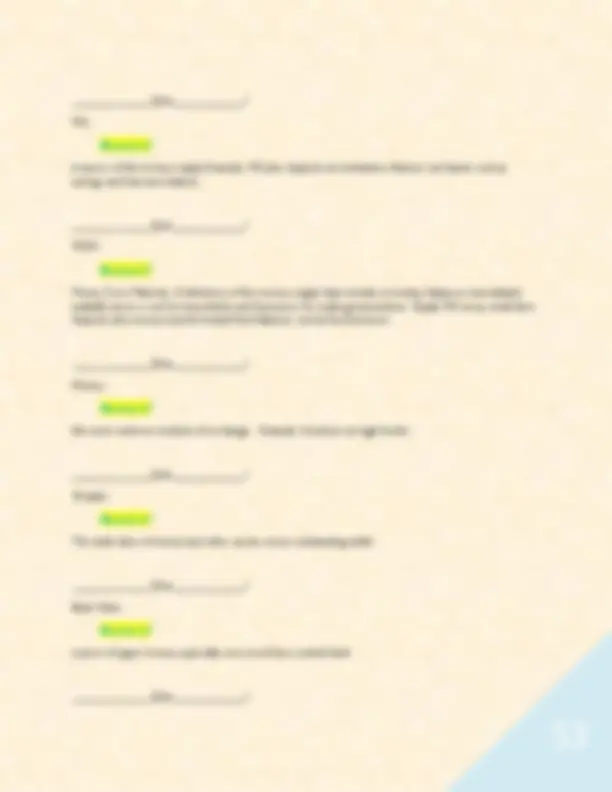
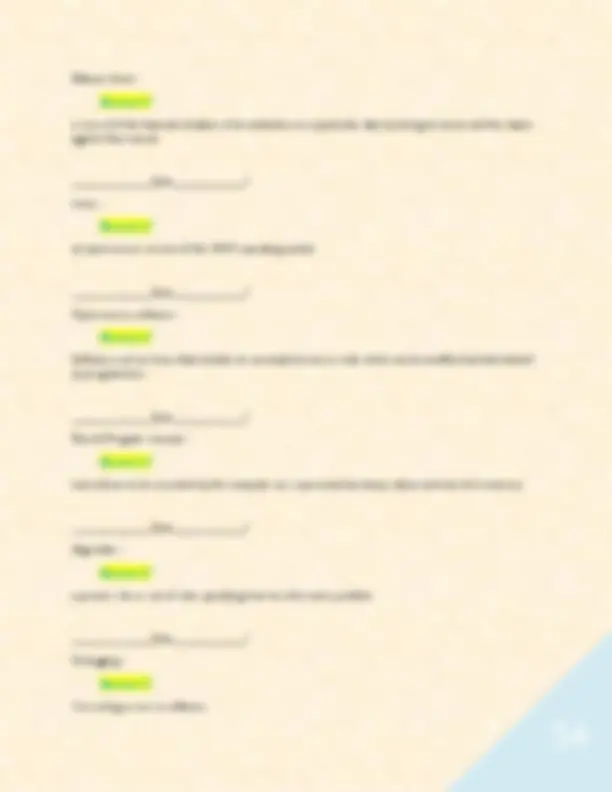
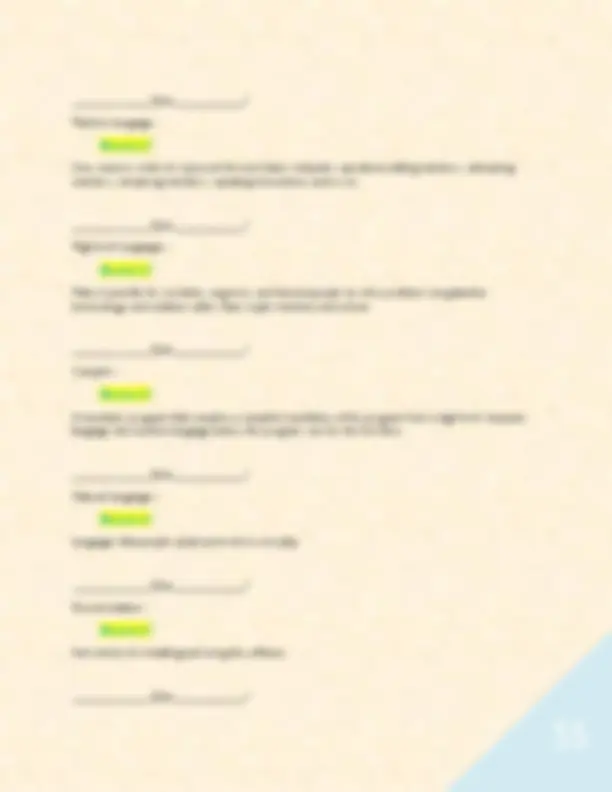
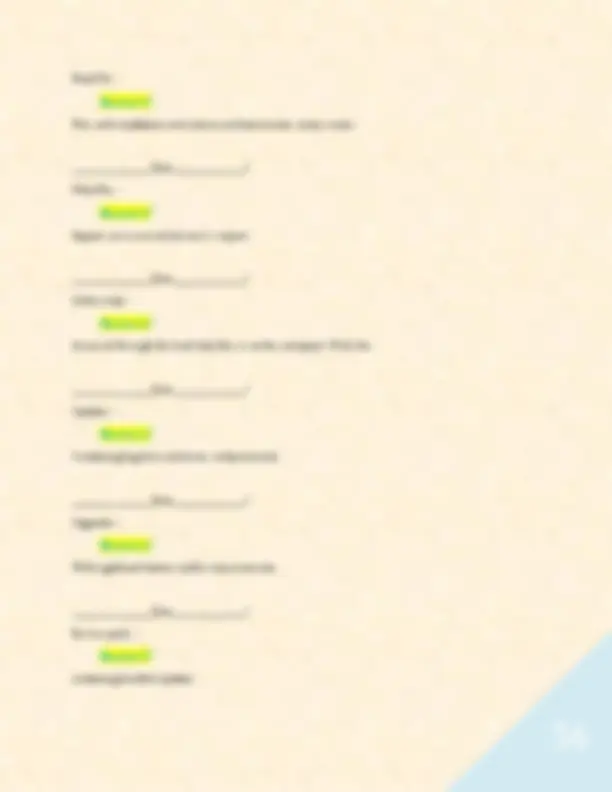
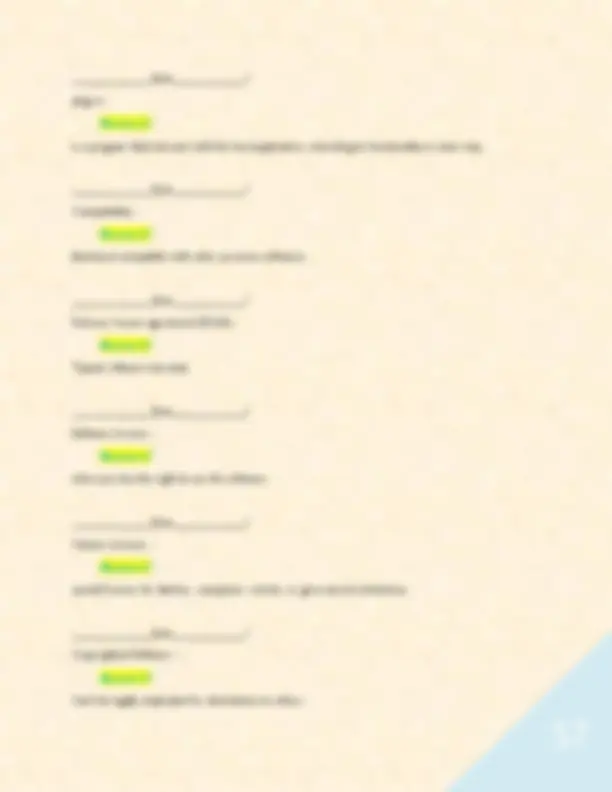
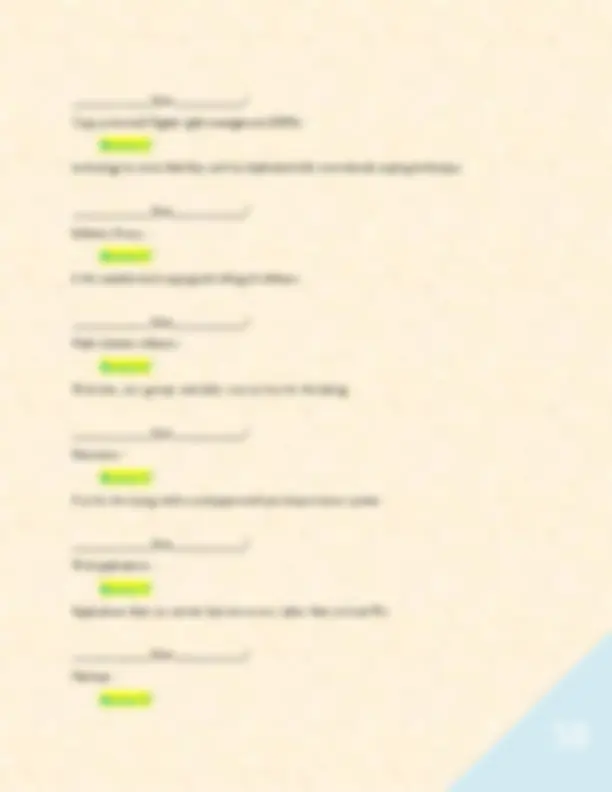
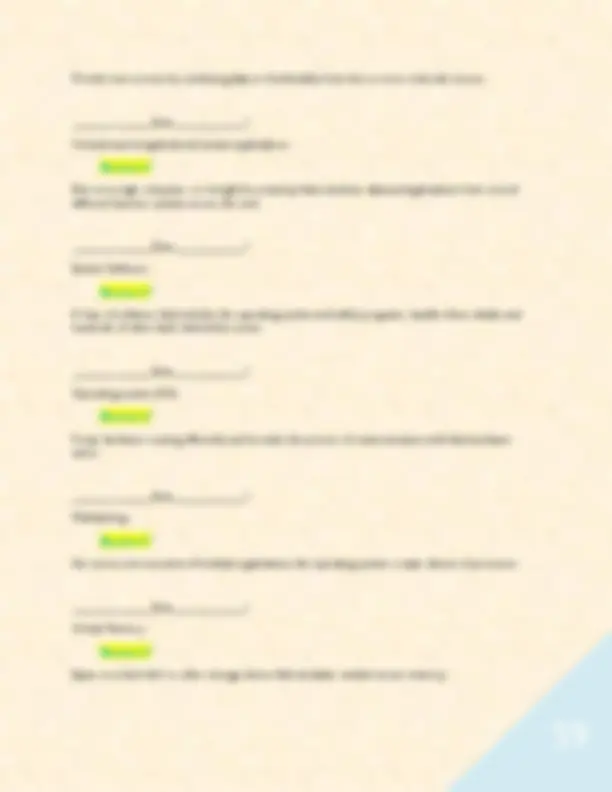
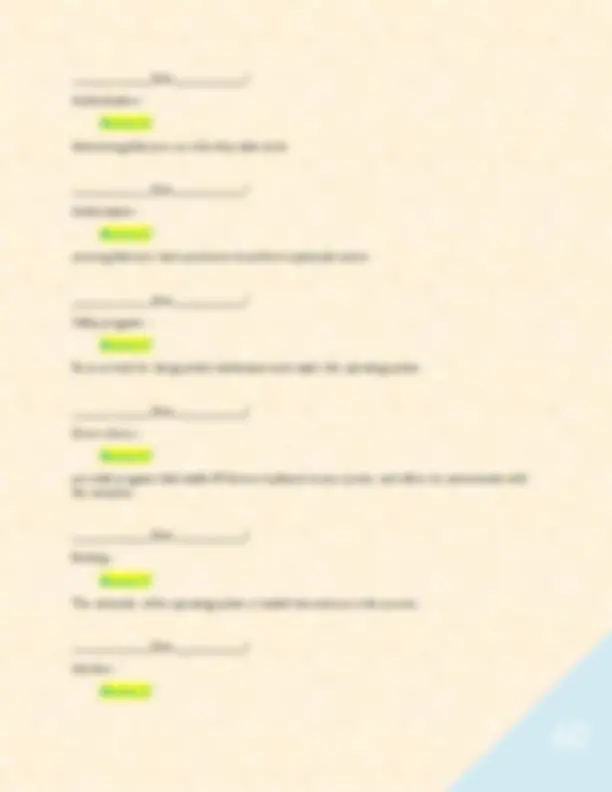
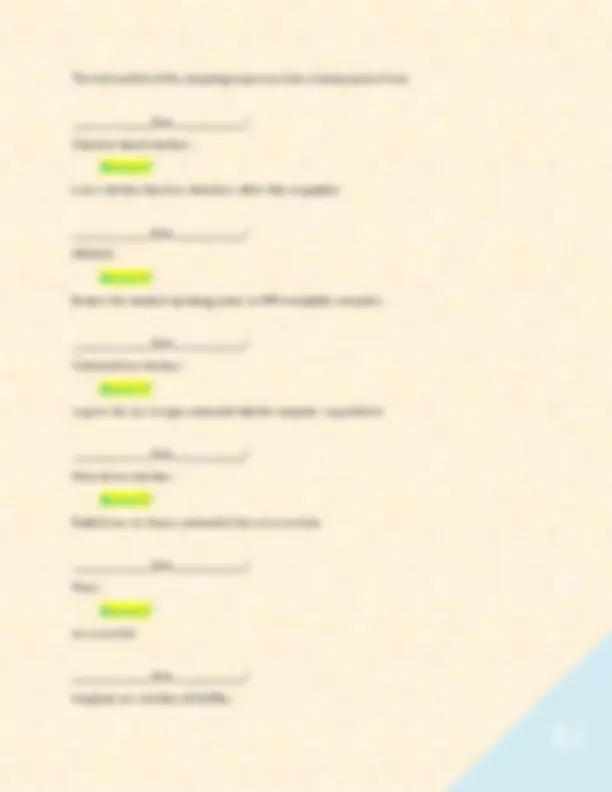
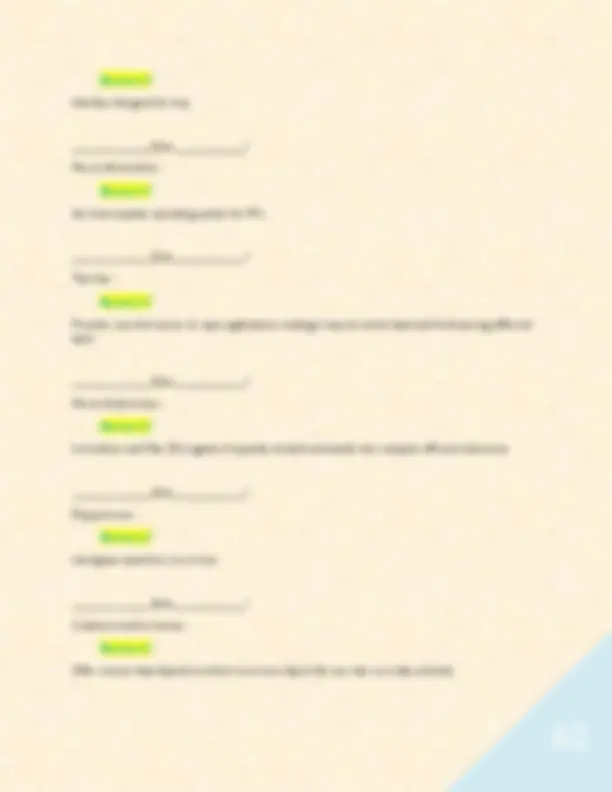
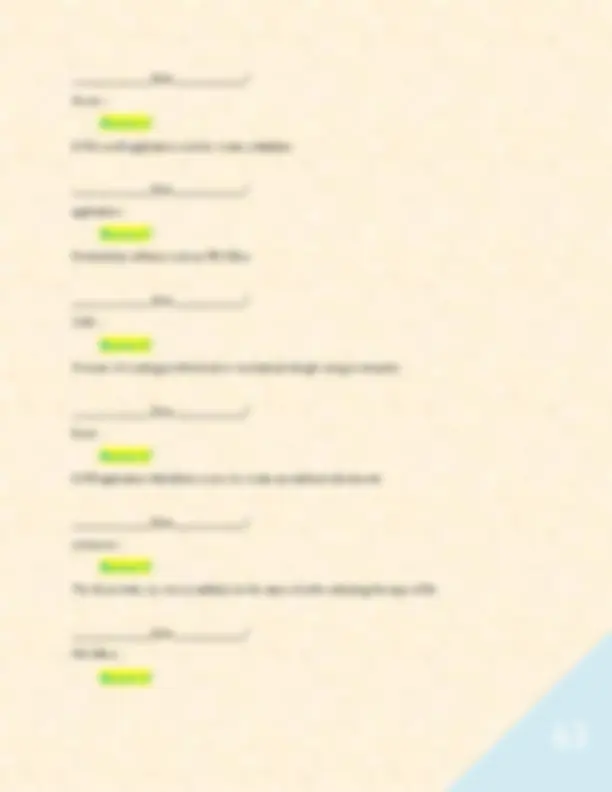
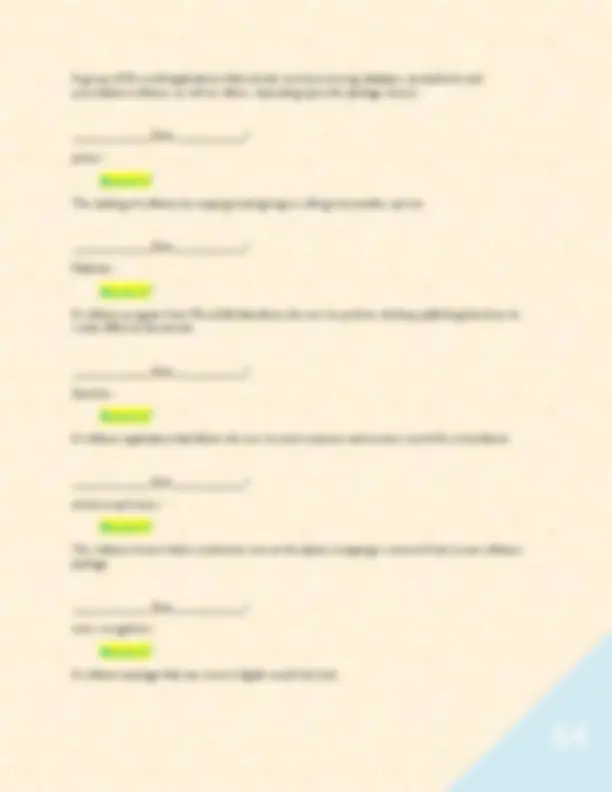
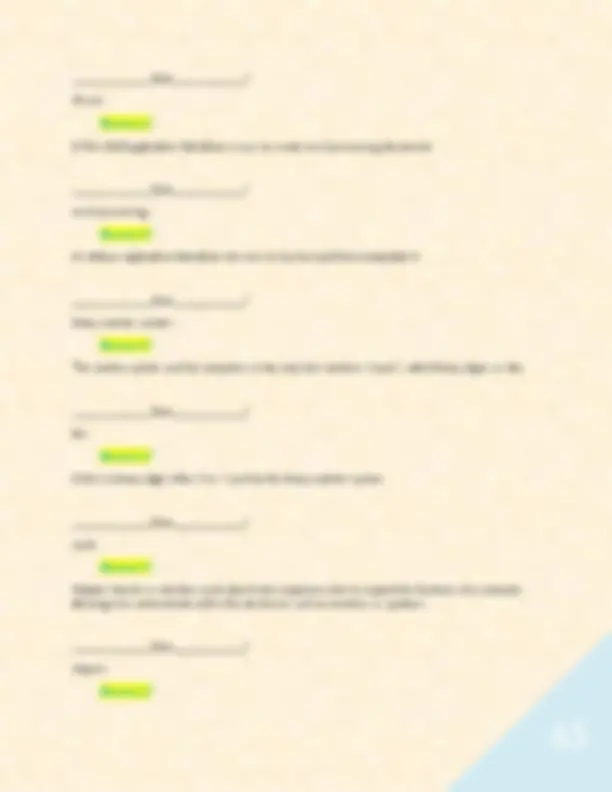
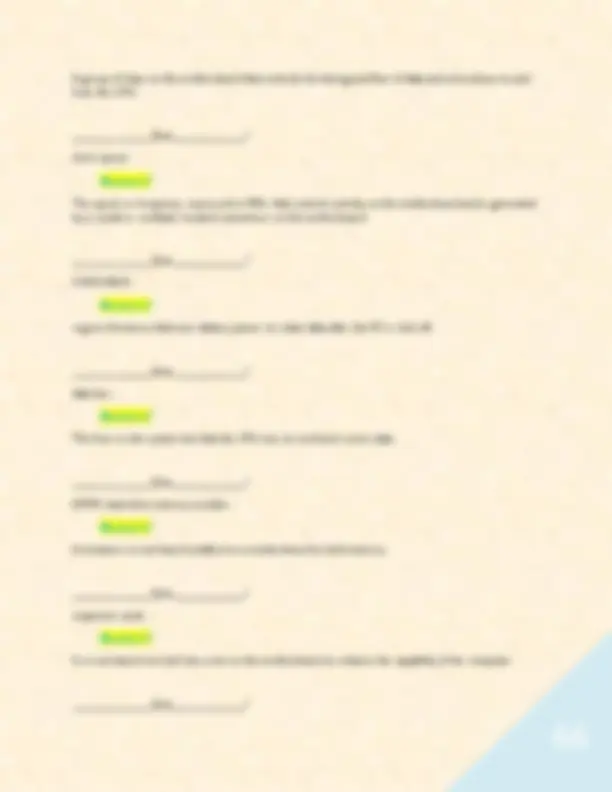
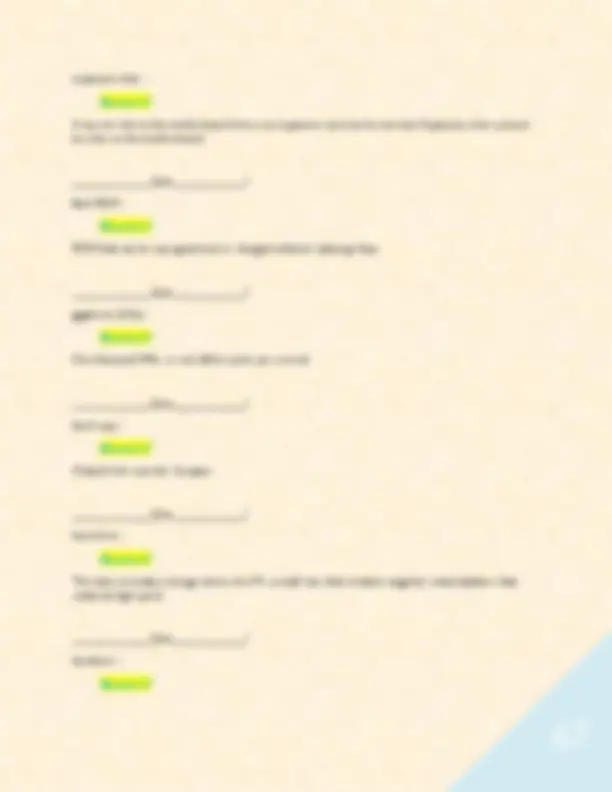
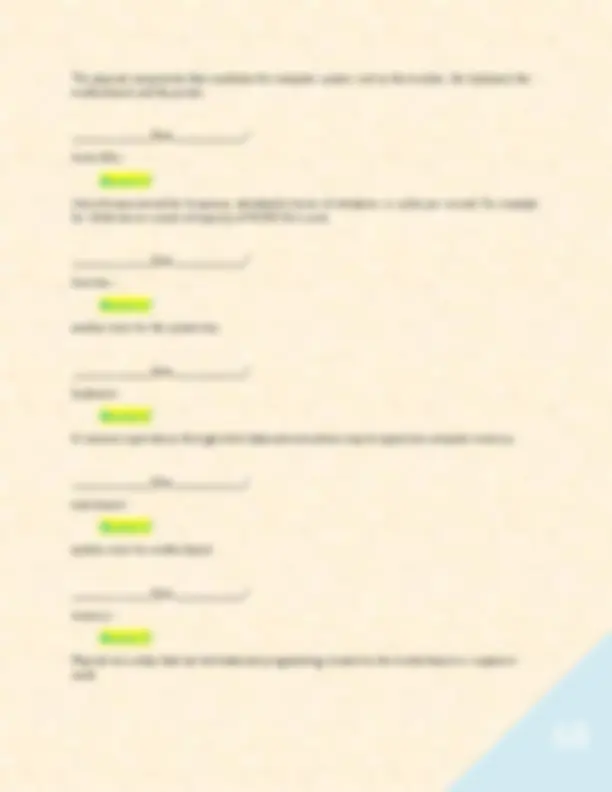
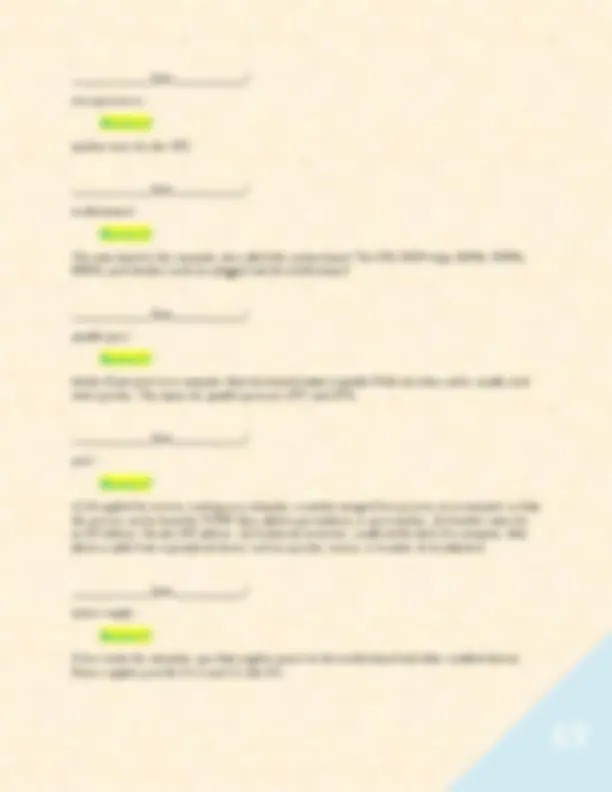
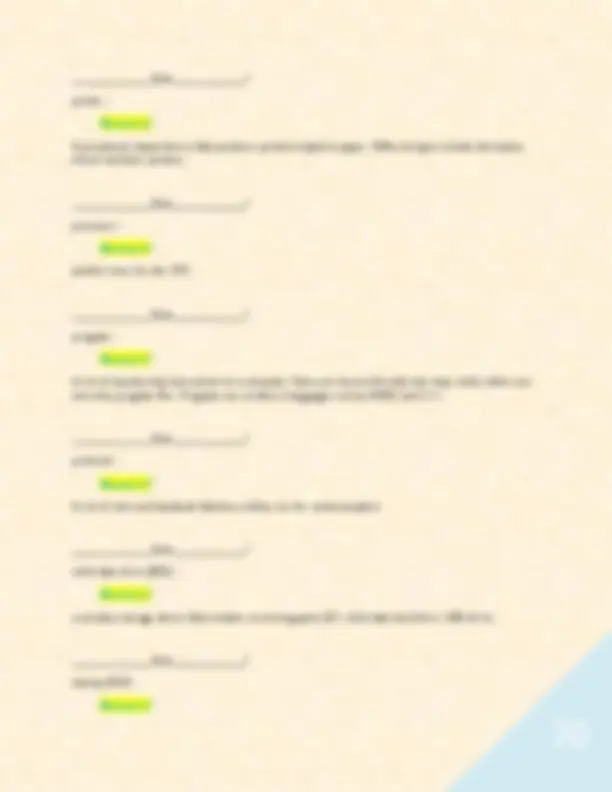
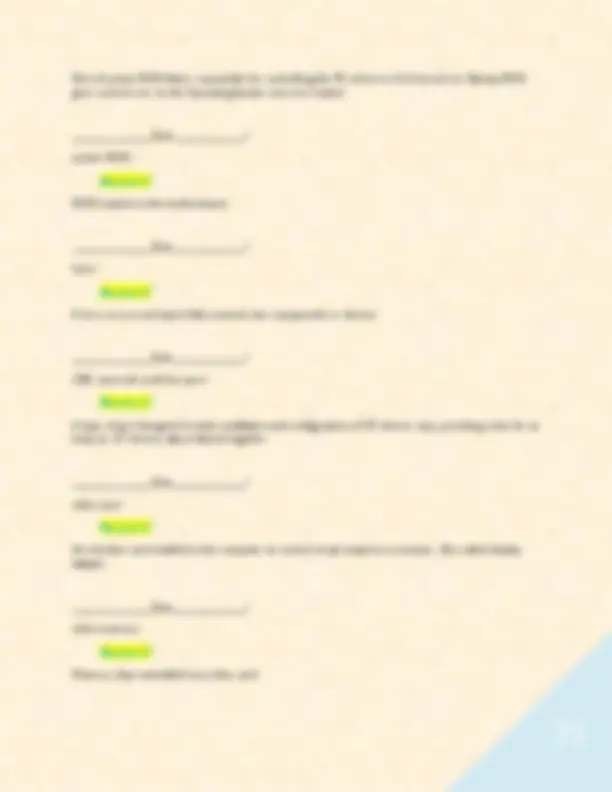
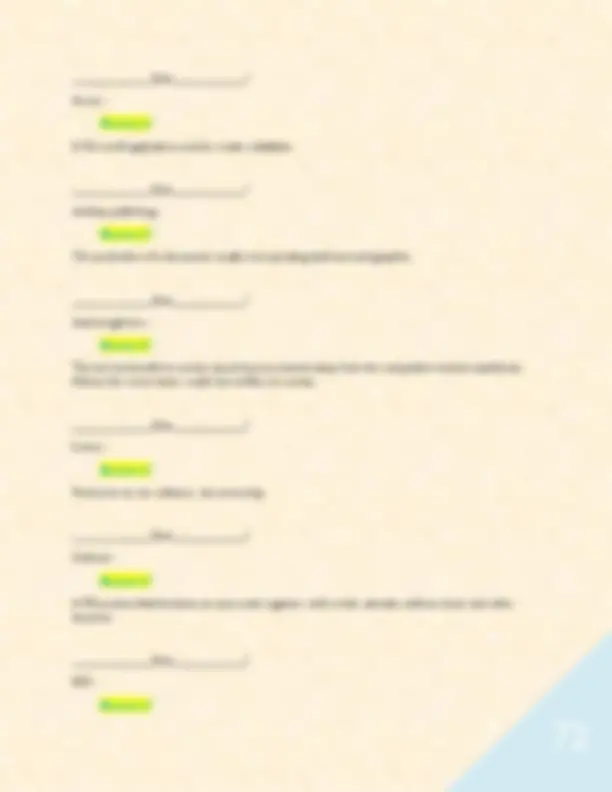
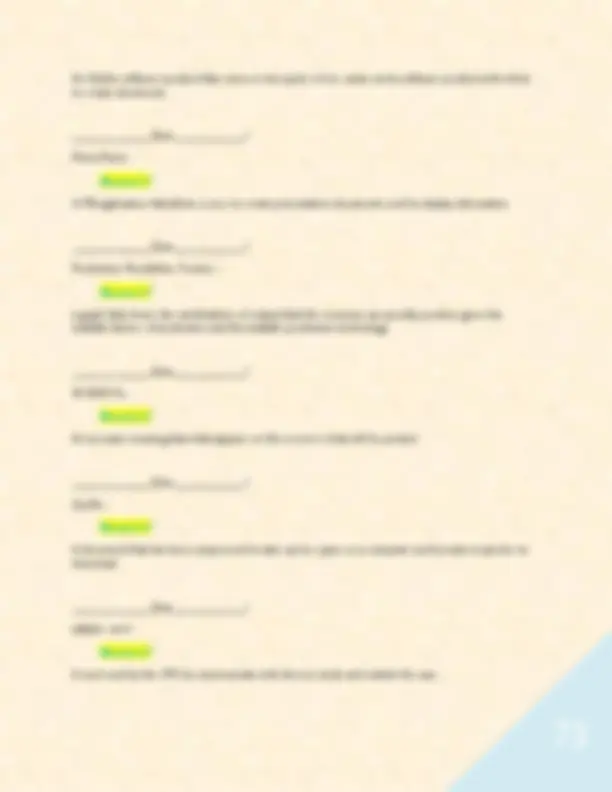
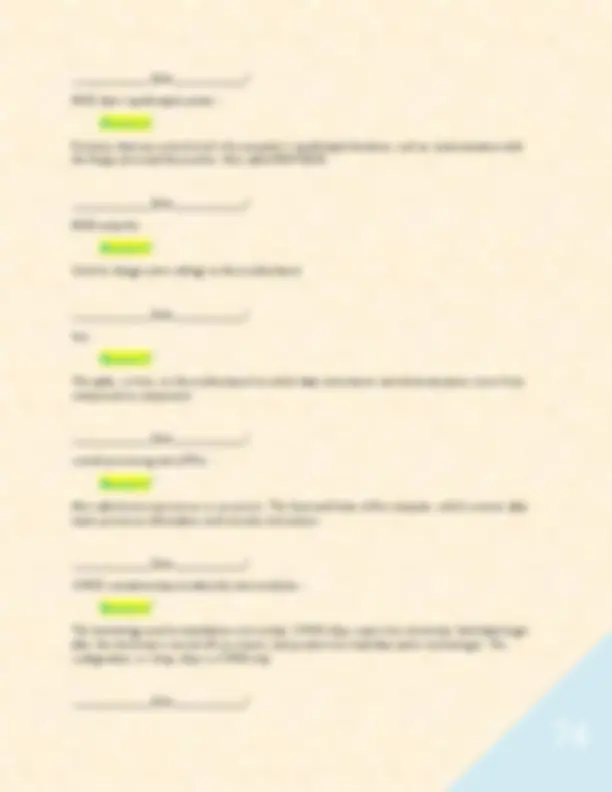
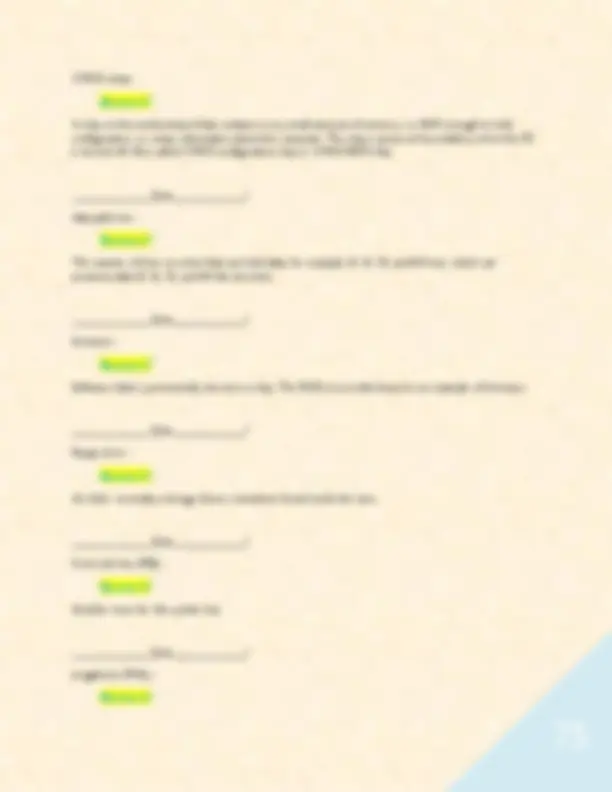
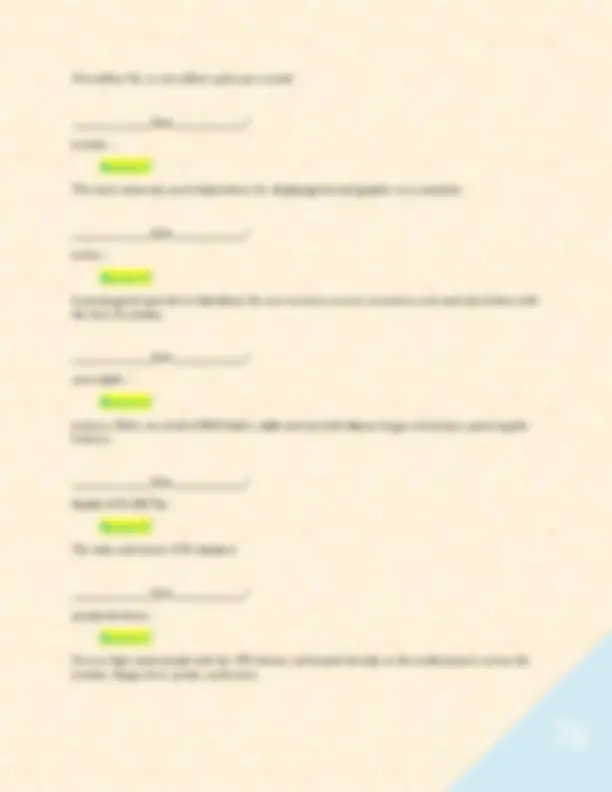
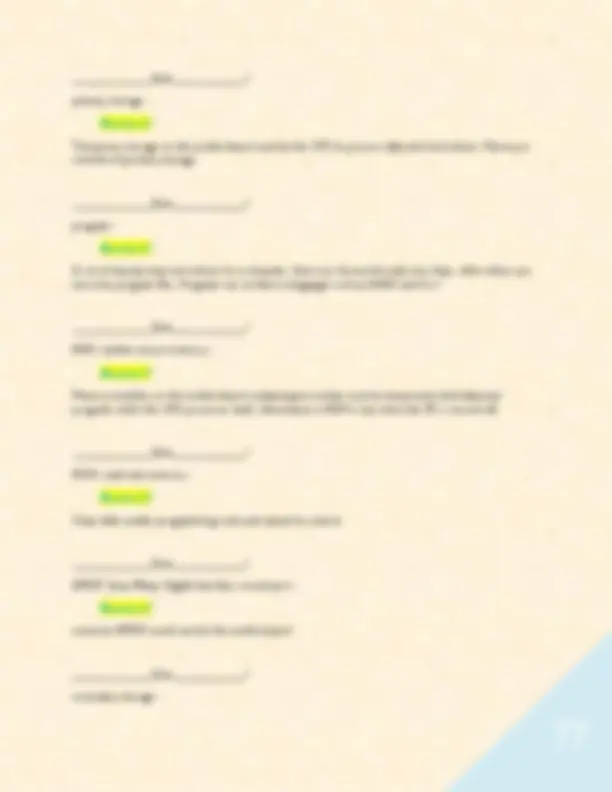
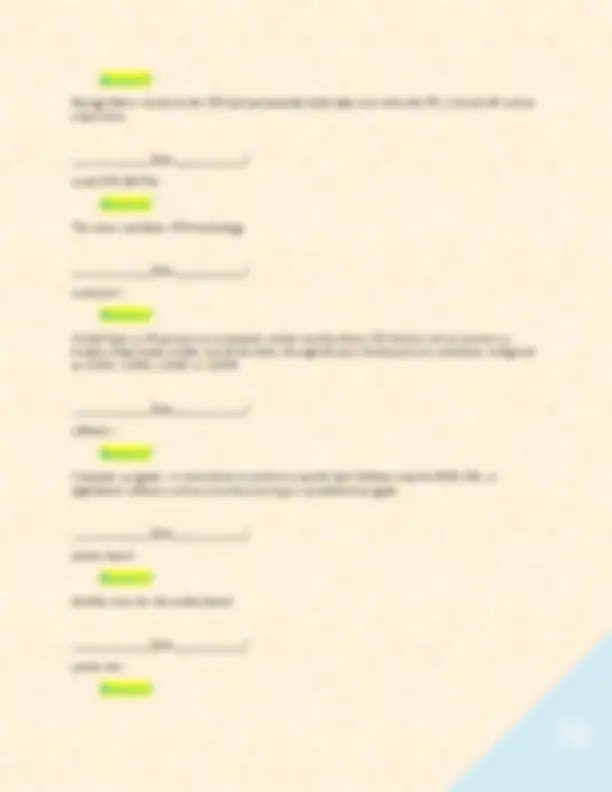
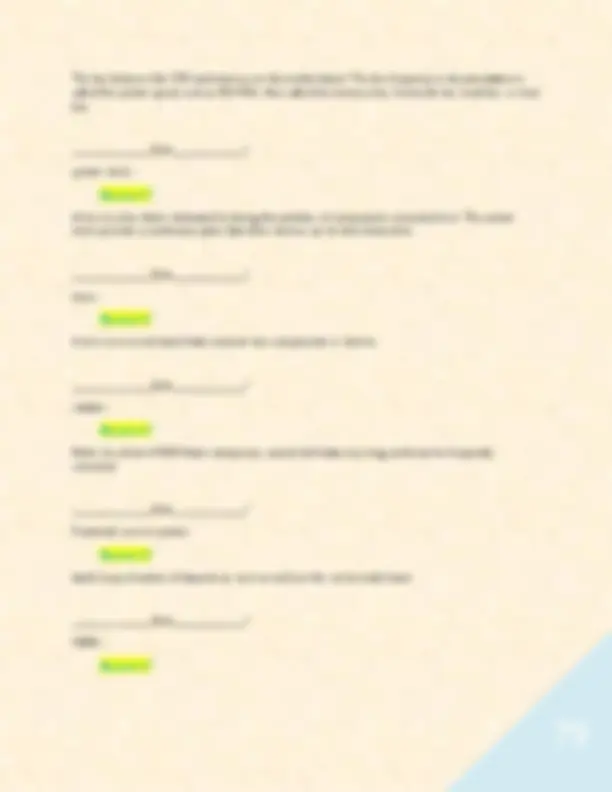
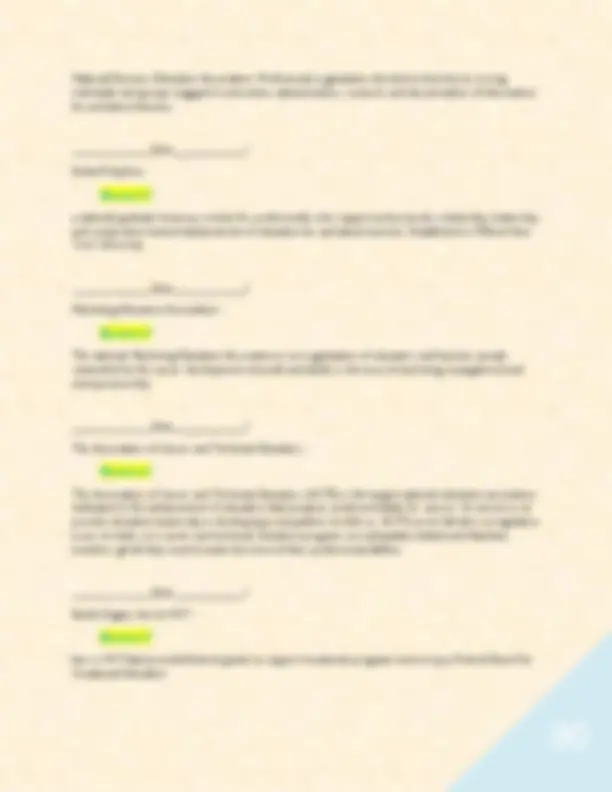
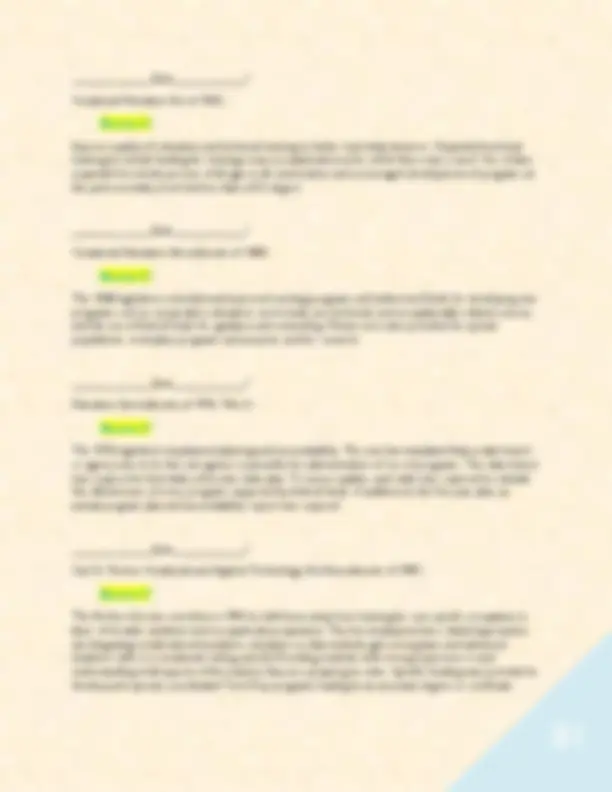
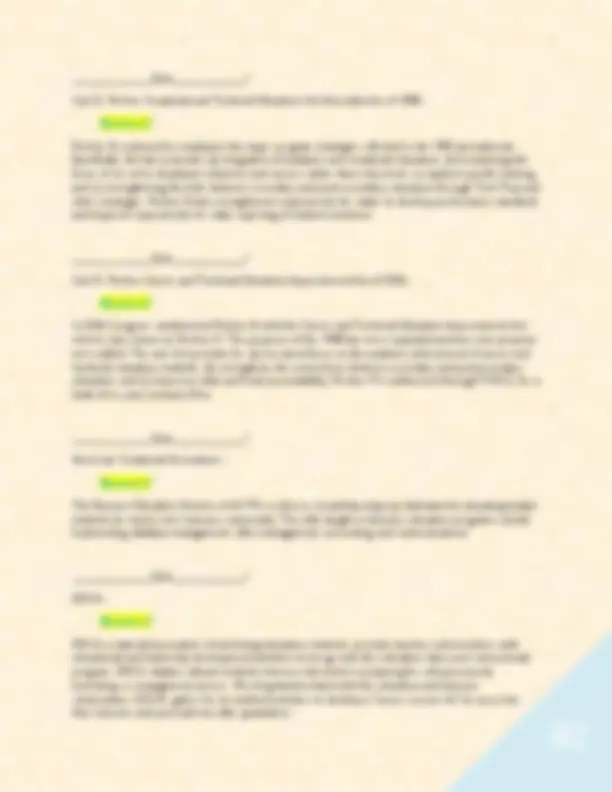
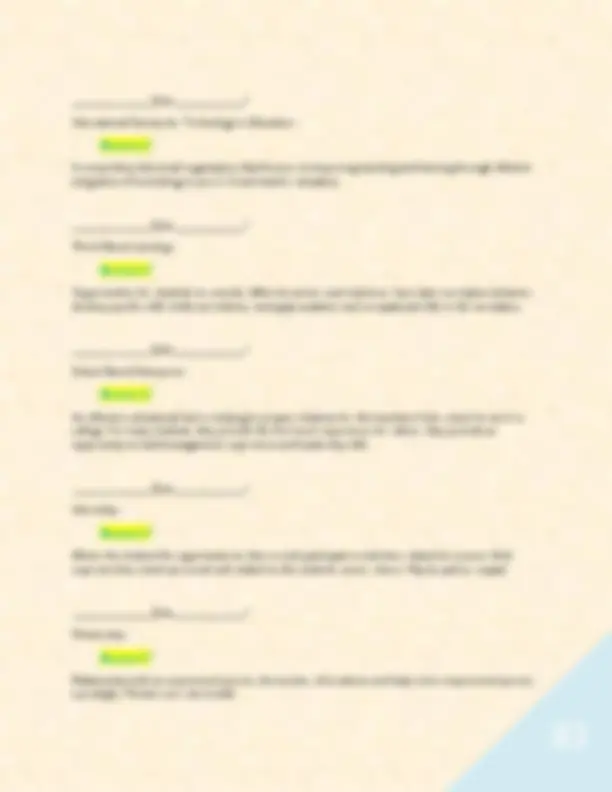
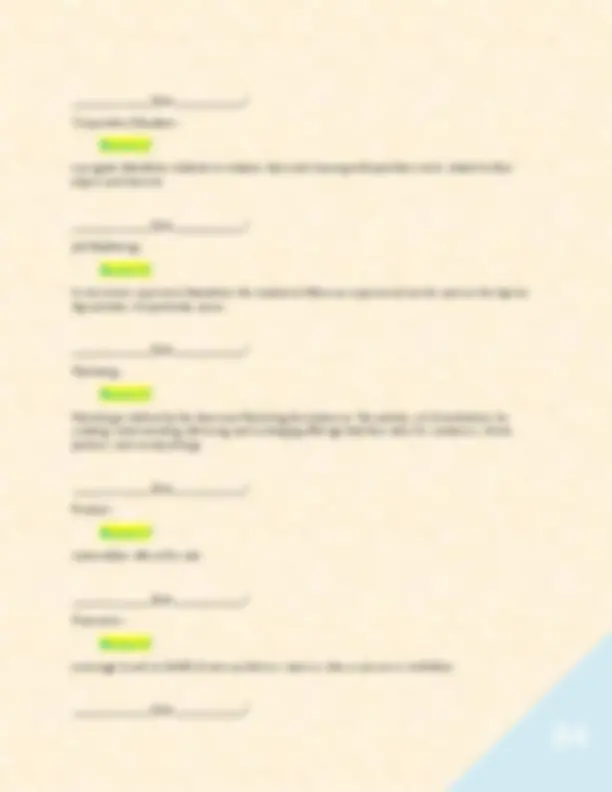
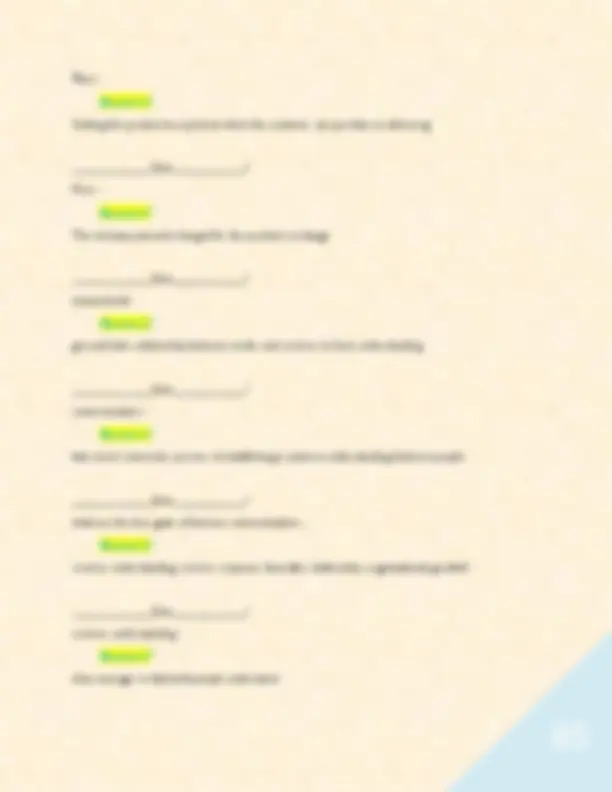
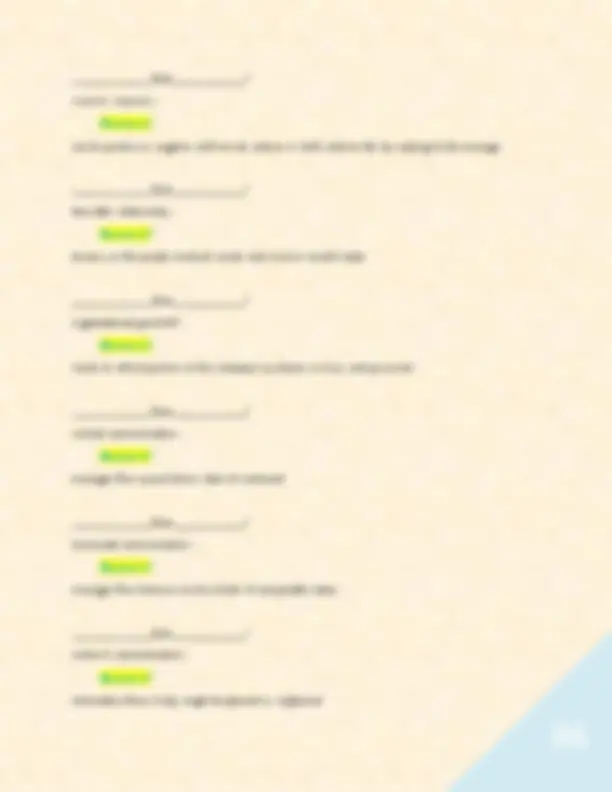
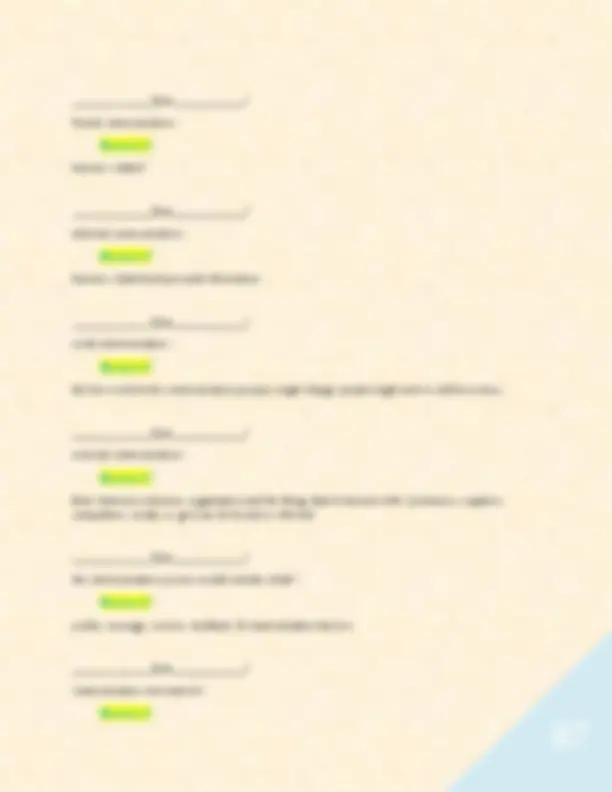
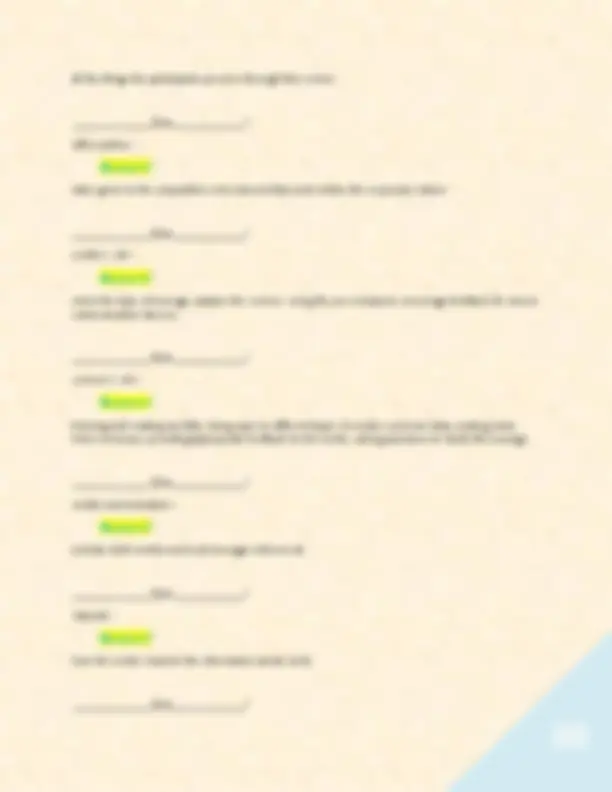
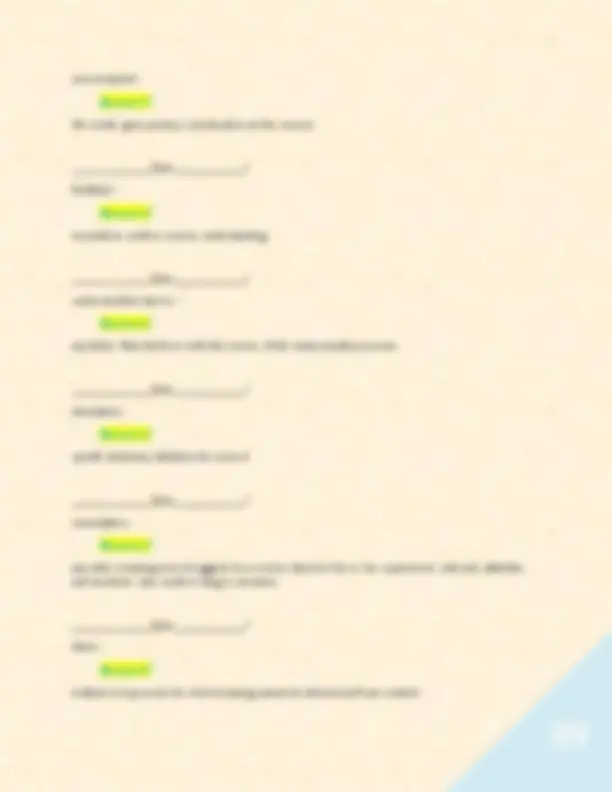
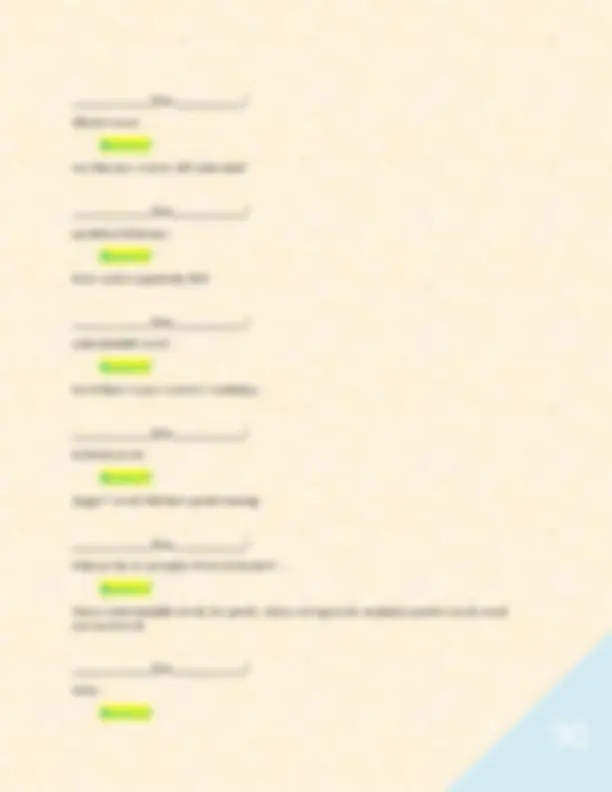
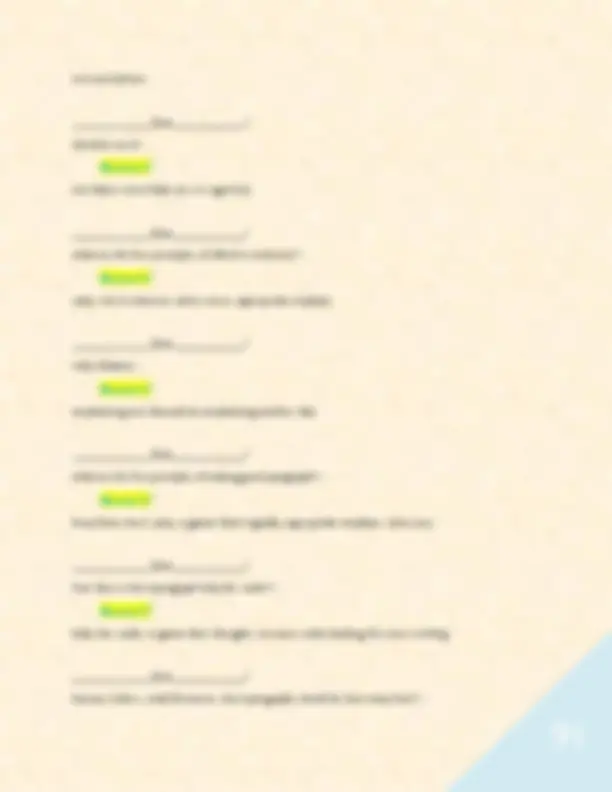
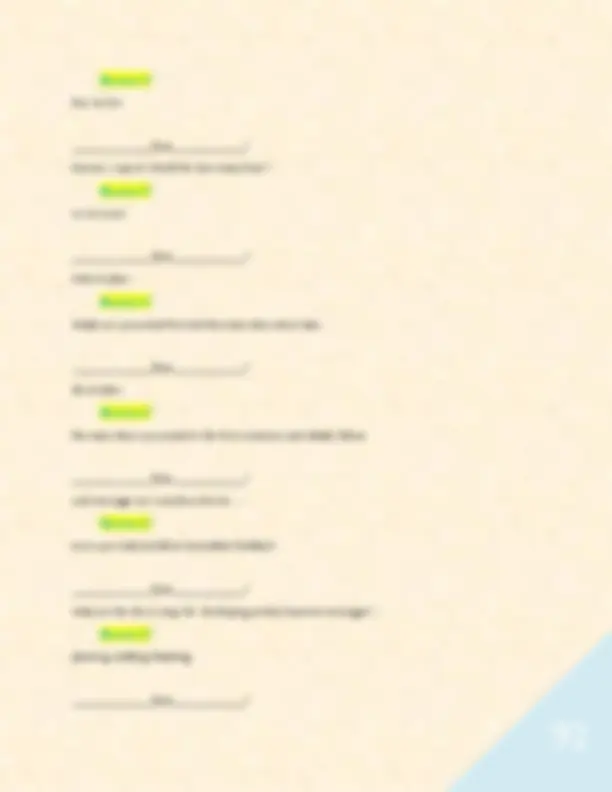
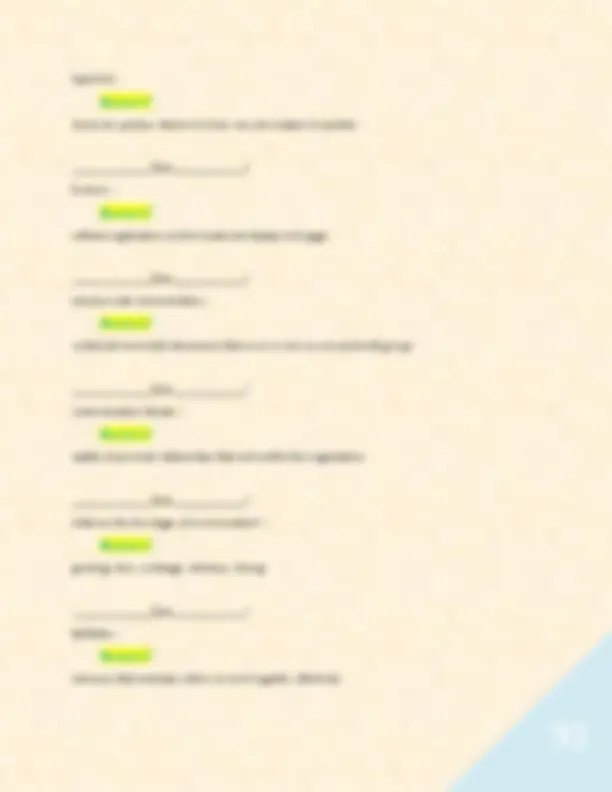
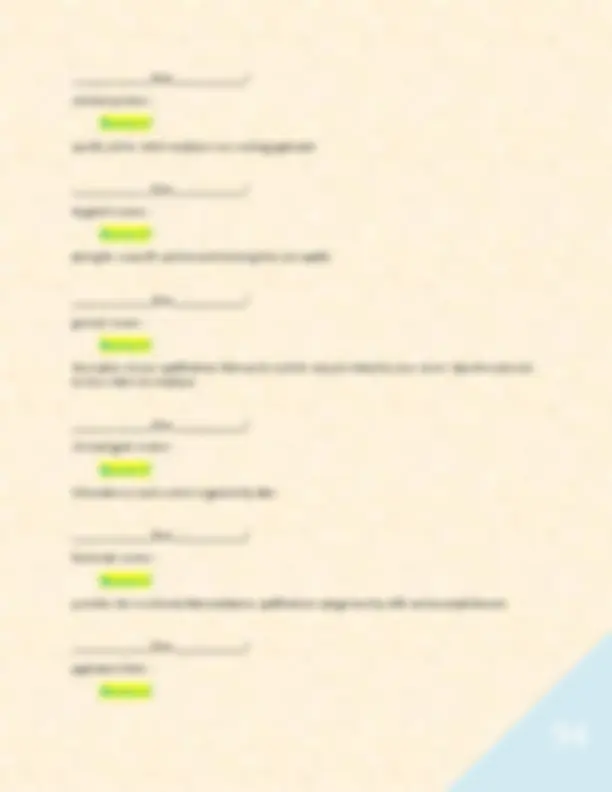
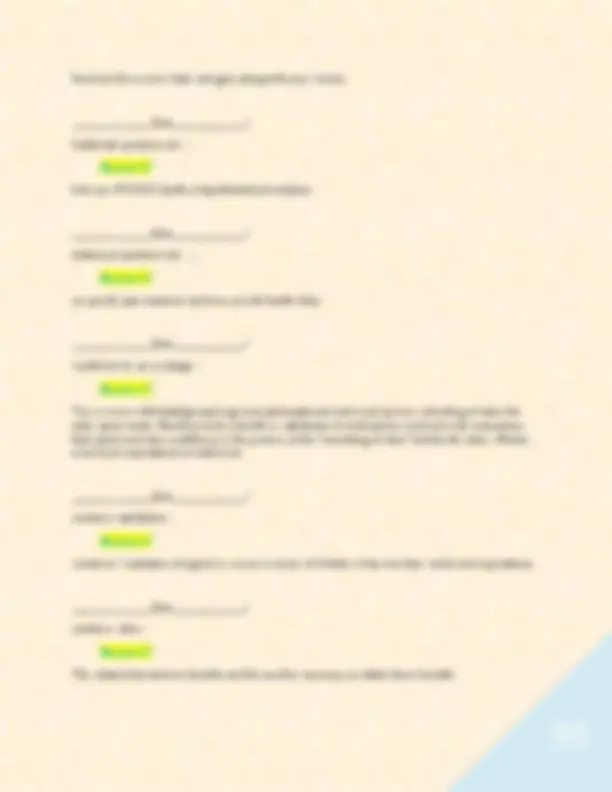
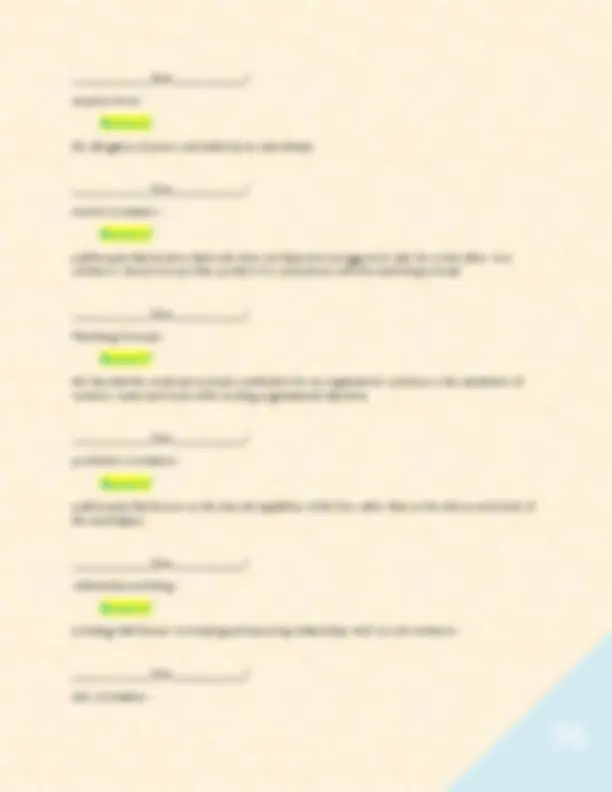
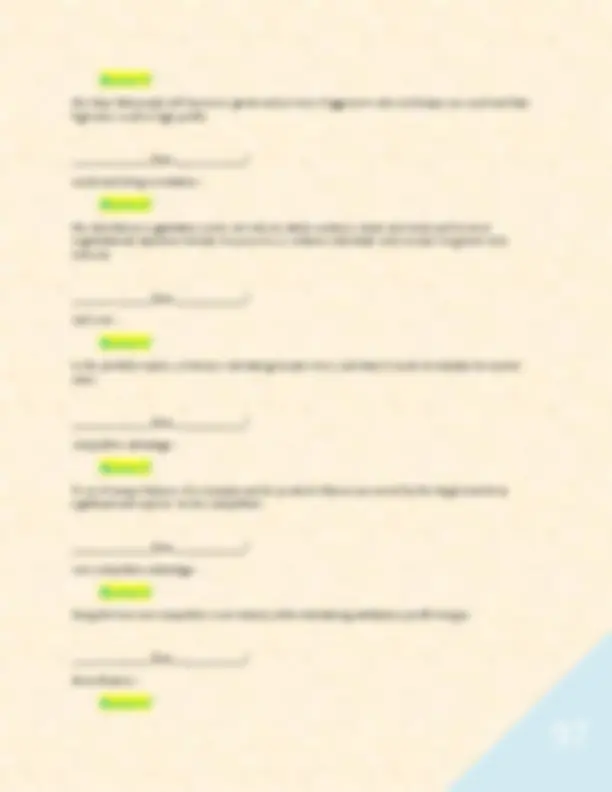
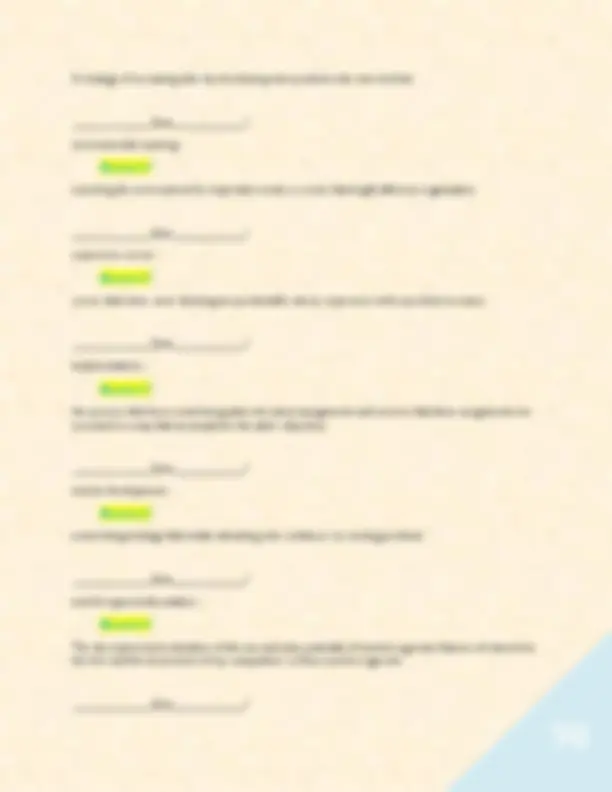
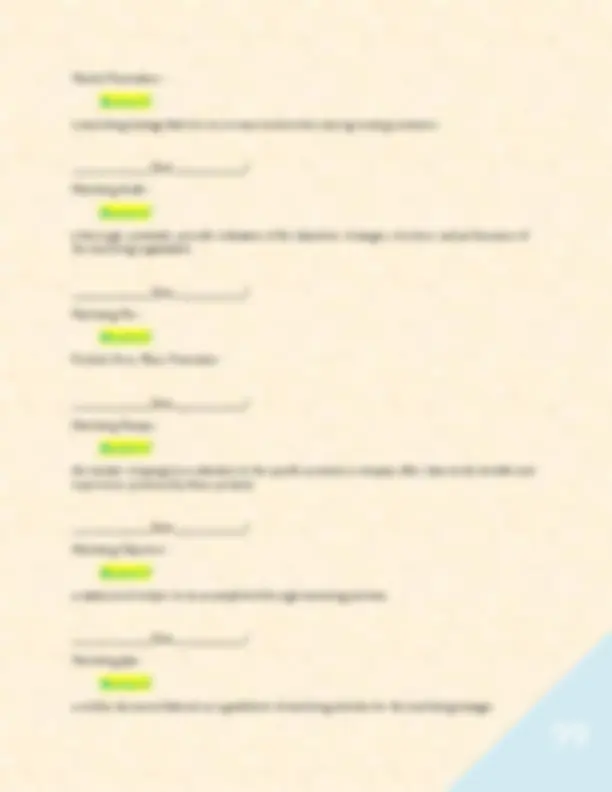
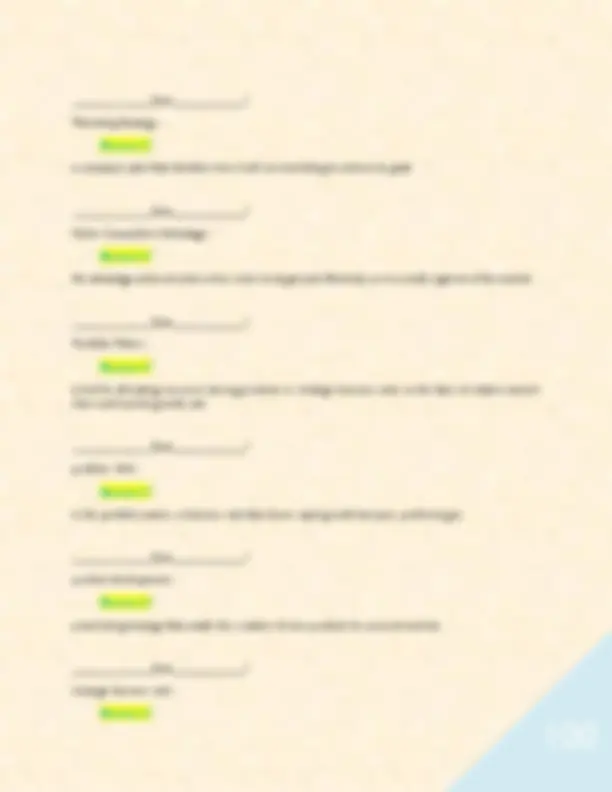


Study with the several resources on Docsity

Earn points by helping other students or get them with a premium plan


Prepare for your exams
Study with the several resources on Docsity

Earn points to download
Earn points by helping other students or get them with a premium plan
Community
Ask the community for help and clear up your study doubts
Discover the best universities in your country according to Docsity users
Free resources
Download our free guides on studying techniques, anxiety management strategies, and thesis advice from Docsity tutors
Praxis II 0101 5101 Business Education / Actual Test Questions with Detailed Verified Answers (Already Graded A+) Terms in this set (588) _____________Quiz____________? Federal Trade Commission Act - Answer✓✓ 1914 - , established the FTC that would investigate and prevent unfair business practices - encourage competition _____________Quiz____________? Sherman Antitrust Act - Answer✓✓ 1890, A law that made it illegal to create monopolies or trusts that restrained free trade _____________Quiz____________? Clayton Antitrust Act - Answer✓✓ This act was enacted in 1914, and it reinforces and broadens the provisions of the Sherman Act. Among its prohibitions are certain exclusive contracts, predatory price cutting to eliminate competitors, and inter-related boards of directors and stock holdings between same-industry corporations _____________Quiz____________? Wheeler-Lea Act - Answer✓✓ 1938, Made unfair and deceptive advertising
Typology: Exams
1 / 110

This page cannot be seen from the preview
Don't miss anything!





























































































Terms in this set (588) _____________Quiz____________? Federal Trade Commission Act -
1914 - , established the FTC that would investigate and prevent unfair business practices - encourage competition _____________Quiz____________? Sherman Antitrust Act -
1890, A law that made it illegal to create monopolies or trusts that restrained free trade _____________Quiz____________? Clayton Antitrust Act -
This act was enacted in 1914, and it reinforces and broadens the provisions of the Sherman Act. Among its prohibitions are certain exclusive contracts, predatory price cutting to eliminate competitors, and inter-related boards of directors and stock holdings between same-industry corporations _____________Quiz____________? Wheeler-Lea Act -
1938, Made unfair and deceptive advertising practices illegal and put FTC over food and drug promotion _____________Quiz____________? Robinson Patman Act -
Passed in 1936, it aims to prevent businesses from selling the same product to different people at different prices (price discrimination); this act strengthened the Clayton Act _____________Quiz____________? Food and Drug Administration (FDA) -
Federal agency formed in 1913 that approves all food, drugs, and cosmetics for sale in the US. _____________Quiz____________? Consumer Product Safety Commission (CPSC) -
1972, oversees the safety of products such as toys, electronics, and household furniture _____________Quiz____________? Equal Employment Opportunity Commission (EEOC) -
1964, ensures that employers do not discriminate against employees because of age, race, color or national origin, religion, gender, or physical challenge. _____________Quiz____________? Occupational Safety and Health Administration (OSHA) -
1970, regulates the workplace environment; ensures that workplaces are safe and healthful for employees
prevents large companies with market power from selling products at very low prices to drive out their competition. _____________Quiz____________? Family Medical Leave Act -
1993; Requires employers with 50 or more workers to grant up to 12 weeks of unpaid leave a year to allow workers to take time off to help care for a new baby or an ill family member without fear of losing their jobs. _____________Quiz____________? Fair Labor Standards Act -
1938 act which provided for a minimum wage and restricted shipments of goods produced with child labor _____________Quiz____________? Fair Credit Reporting Act -
1970, A federal law that established procedures that consumer-reporting agencies must follow in order to ensure that records are confidential, accurate, relevant and properly used. _____________Quiz____________? Fair Credit Billing Act -
1975, protect consumers from unfair billing practices and to provide a mechanism for addressing billing errors _____________Quiz____________? Truth in Lending Act/ Consumer Credit Protection Act -
requires sellers and lenders to disclose credit terms or loan terms so that individuals can shop around for the best financing arrangements _____________Quiz____________? Equal Credit Opportunity Act -
prohibits creditors from denying credit based on gender, age, race, national origin, religion, or marital status; the credit application can be judged only on the basis of financial responsibility _____________Quiz____________? Credit Repair Organizations Act -
makes it illegal for groups to make false promises or claims about improving your credit history. _____________Quiz____________? Fair Debt Collection Practices -
Added to Consumer Credit Protection Act, makes abusive and deceptive collection practices by lenders illegal _____________Quiz____________? Tort -
a wrongful act, other than breach of contract, for which an injured party has the right to sue _____________Quiz____________? Lein -
a claim on the property of another as security for a debt
An opportunity to make money _____________Quiz____________? Capital -
The assets available for use in an investment _____________Quiz____________? Income Statement -
a financial document that shows how much money; revenues; came in and how much money; expenses; was paid out _____________Quiz____________? Revenue -
The total amount of money made in a business over one year. _____________Quiz____________? Gross Revenue -
the net sales minus the cost of goods and services sold _____________Quiz____________? Operating Expenses -
Expenses incurred in paying for the day-to-day activities of the business _____________Quiz____________? Net Income -
Also called profit. Calculated as the Revenue less Expenses _____________Quiz____________? Profit -
The amount of money you gain in an investment _____________Quiz____________? Entrepreneur -
someone who is willing to assume the responsibility, risk and rewards of starting and operating a business _____________Quiz____________? Personal Strength -
Some thing that you can do well _____________Quiz____________? Personal Trait -
a quality or characteristic that you have _____________Quiz____________? Credit rating -
an estimate, based on previous dealings, of a person's or an organization's ability to fulfill their financial commitments
..., the business of drawing public attention to goods and services _____________Quiz____________? Information Technology -
..., the use of technology to move and process information _____________Quiz____________? Target Marketing -
..., focusing all marketing decisions on a very specific group of people who you want to reach. _____________Quiz____________? Administration -
..., the management of any office, business, or organization; direction. _____________Quiz____________? Parent Company -
A company that controls or owns another company or companies. _____________Quiz____________? Brand -
name, symbol, or design used to identify a product. _____________Quiz____________? Brand Loyalty -
a favorable attitude toward and consistent purchase of a single brand over time _____________Quiz____________? Logo -
An emblematic design adopted by an organization to identify its products. _____________Quiz____________? Market share -
A company's product sales as a percentage of total sales for that industry _____________Quiz____________? Jingle -
a short piece with a catchy repetition, used in commercials _____________Quiz____________? Slogan -
Catchy phrase or words that identify a product or company _____________Quiz____________? Divergent Thinking -
a type of thinking that is associated with creativity - seeing lots of solutions to a problem _____________Quiz____________?
_____________Quiz____________? appreciation -
an increase in price or value _____________Quiz____________? depreciation -
a decrease in price or value _____________Quiz____________? liquidity -
being in cash or easily convertible to cash _____________Quiz____________? Consumerism -
a movement advocating greater protection of the interests of consumers _____________Quiz____________? Consumption -
the act of consuming something _____________Quiz____________? Start-up expenses -
Expenses incurred to decide whether to go into business and which business to enter can be expensed up to $5,000; the balance is amortized over a period of 180 months. If the start-up expenses exceed $50,000, the immediate deduction is reduced dollar for dollar, until no deduction after $55,000. _____________Quiz____________? Income statement -
a financial statement that gives operating results for a specific period _____________Quiz____________? Profit & Loss statement -
An itemized financial statement of the income and expenses of a company's operations. _____________Quiz____________? Cash flow statement -
A measure of the money you receive and the money you spent _____________Quiz____________? Entrepreneurship -
the process of starting, organizing, managing, and assuming the responsibility for a business. The foundation of the free market economy. Create diverse product market. _____________Quiz____________? Basic Organization Structure -
function, product, market, customer, location. Division of labor, structure for making decisions. Goal: Maintain efficiency in business.
functional and product structures - both financial and production oversee a project _____________Quiz____________? Management style-Exploitative/Authorative -
managerial decisions are imposed on subordinates and management has greater responsibility; little communication overall on the hierarchy; Employees very dependent on jobs and exploited by management. Ineffective _____________Quiz____________? Management style-Exploitative/benevoloent -
managerial assumption that management acts in the best interest of the workers; little communication overall on the hierarchy; Management patronizing and fail to take into account employees feelings. Ineffective _____________Quiz____________? Consultative style -
small degree of trust in employees by management; all employees feel some responsibility for the overall success of the company, there is some degree of teamwork and freedom to act on minor issues among employees. But management handles larger issues and does not trust lower level employees with important manners. _____________Quiz____________? Participative-group style -
most effective. Managers have trust in subordinates because every employee is well trained and competent. Motivation by reward not punishment. _____________Quiz____________? Sole proprietorship -
owned and operated by one person. Suffer from limited sources of capital, high risk. Do not have to pay income taxes on profits, only personal income. _____________Quiz____________? Corporations -
distinct and viable entity. Ownership of a corporation is held by individuals who own shares of corporation's stock. Individual shareholders are not responsible for the actions of the corporation-just lose initial investment. Employees cannot be prosecuted for the acts of the corporation at large. Attract solid managers, manipulate/influences govt policy to suit their ends. _____________Quiz____________? Corporate governance -
Stockholders elect the members of a board of directors who oversee the operations of the corporation. Real power held by management group not stockholders who cooperate with a few major stockholders to ensure they remain in power. _____________Quiz____________? Proxies -
permission given by stockholders to someone else to manage the stockholder's interest in the corporation. _____________Quiz____________? Advantages of Corporations -
ownership of corporations is easily transferable and it rarely has any effect on the daily operations of the business. _____________Quiz____________?
Steps to Business planning -
goals or end points to where the business is aiming. _____________Quiz____________? Business Policies -
statements of purpose that will define the way a business goes about achieving its goals. A successful set of policies set limits to business activity and encourage initiative. _____________Quiz____________? Business strategies -
Overall plans that take into consideration such external factors as trends in the marketplace or actions of the competitors. Course of action. _____________Quiz____________? Business procedures -
must be clear and specify exactly how future actions should be performed. _____________Quiz____________? Business rules and programs -
things that employees are either required to do or are forbidden from doing. _____________Quiz____________? Fiscal policy -
created and implemented by the federal government in the hopes of increasing the gross national product, raising employment and stabilizing price and money. _____________Quiz____________? Expansionary fiscal policy -
combats a recession by either lowering taxes or increasing government spending _____________Quiz____________? Contractionary fiscal policy -
aims to fight inflation and involves raising taxes and decreasing spending. _____________Quiz____________? Monetary policy -
actions of a bank or currency regulation organization that affects the size of the money supply and therefore interest rates. Designed to restrain inflation, improve the employment rate and stabilize the economy. _____________Quiz____________? 3 ways the Fed carries out monetary policy -
Open market operations, discount rate, reserve requirements. To halt a recession - expands the money supply, decrease inflation - limit spending by contracting the money supply.